Understanding the Travel and Tourism Sector: A Business Perspective
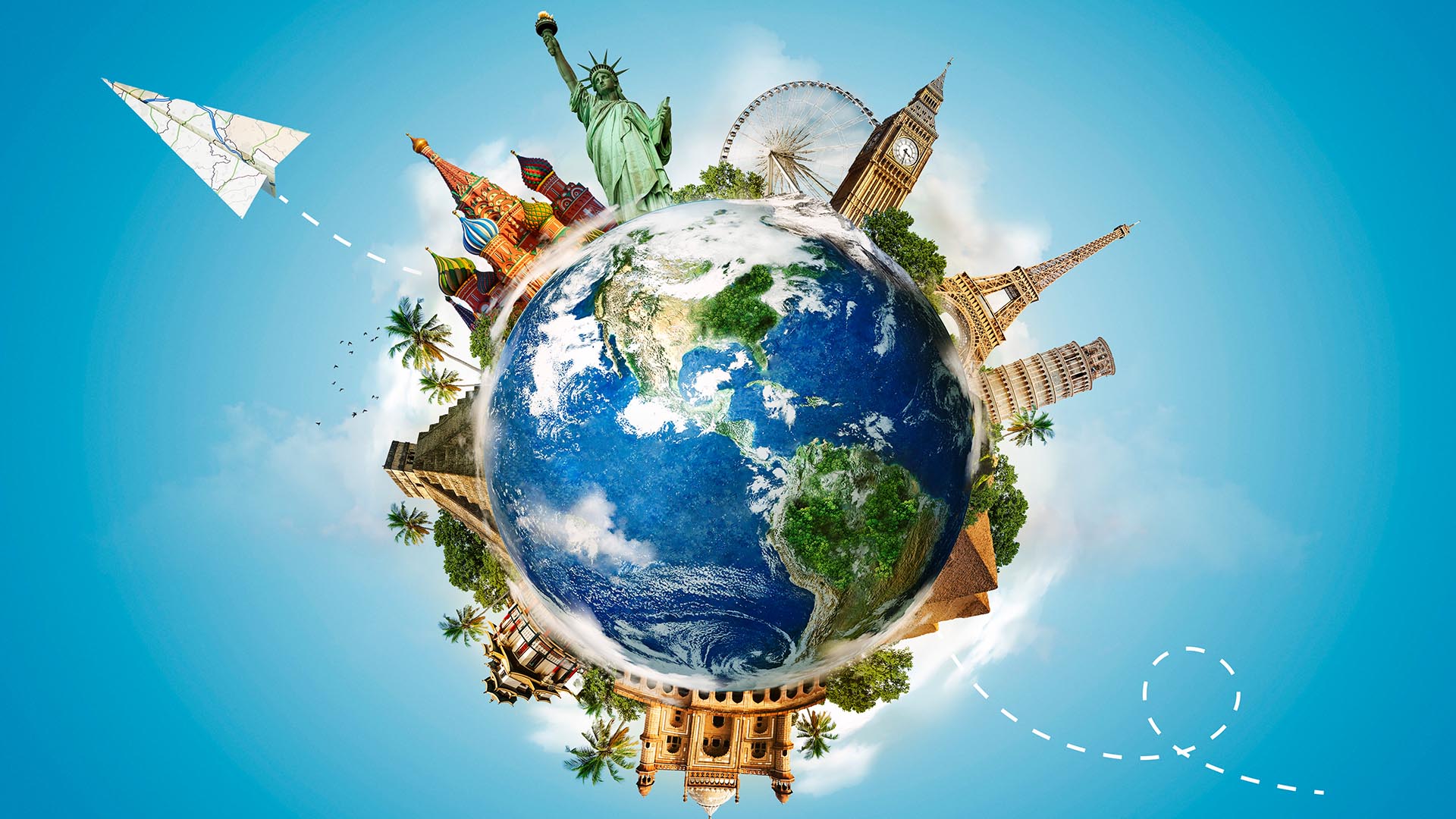
The world of business is inextricably linked with the realm of travel and tourism. From corporate travel arrangements to the operation of hospitality giants, this sector plays a pivotal role in the global economy.
The travel and tourism industry is not merely about vacations and leisure; it encompasses a diverse array of activities, services, and businesses that fuel economies, create jobs, and shape the way we explore the world.
In this article, we will embark on a journey to understand the intricacies of the travel and tourism sector from a business standpoint. We will explore its significance in the global economy, delve into the core components of the industry, examine the economic impact, and discuss emerging trends and challenges.
Moreover, we will shed light on the business aspects of travel, highlighting the key players, revenue streams, and marketing strategies that drive success.
But why should business professionals, beyond those directly involved in tourism, care about this sector? The answer lies in the fact that travel and tourism intersect with nearly every industry. Whether you're in finance, technology, healthcare, or any other field, understanding how this sector operates can unlock opportunities for growth, collaboration, and innovation.
So, fasten your seatbelts and prepare for a journey through the multifaceted world of travel and tourism, where business meets exploration and economic growth meets wanderlust.

Travel and Tourism
Travel and tourism refer to the activities, services, and industries associated with people traveling to and staying in places outside their usual place of residence for leisure, business, or other purposes.
The Core Components of Travel and Tourism
At its heart, the travel and tourism sector comprises several key components, each playing a unique role in the industry's ecosystem. Understanding these components is crucial for any business professional aiming to navigate this dynamic sector effectively.
Here are the primary elements:
1. Accommodation: Accommodation providers are the backbone of the tourism industry. They include hotels, resorts, vacation rentals, and even unconventional options like Airbnb. These establishments cater to travelers by offering a place to stay, ranging from budget to luxury.
2. Transportation: Travel relies heavily on transportation. This segment encompasses airlines, cruise lines, railways, car rental services, and public transportation systems. Efficient transportation networks are vital for connecting travelers to their destinations.
3. Food and Beverage: Dining experiences are an integral part of any trip. This category includes restaurants, cafes, food trucks, and bars. Culinary tourism, where travelers explore local cuisine, has become a significant trend within this segment.
4. Travel Agencies: Travel agencies and tour operators serve as intermediaries between travelers and service providers. They help plan itineraries, book accommodations, and arrange transportation, making the travel process more convenient.
5. Attractions and Entertainment: Tourist destinations offer various attractions, from historical sites and museums to theme parks and natural wonders. Entertainment options such as theaters and music venues also contribute to the overall travel experience.
6. Travel Technology: In the digital age, technology has transformed the way people plan and experience travel. Online booking platforms, travel apps, and services like TripAdvisor have reshaped the industry's landscape.
7. Tourism Services: This category includes a range of services such as travel insurance, currency exchange, and visa assistance. These services ensure that travelers are prepared for their journeys and can navigate any unforeseen challenges.
8. Destination Management: Local governments and organizations play a pivotal role in managing and promoting tourist destinations. They invest in infrastructure, marketing, and sustainability efforts to attract visitors.
The Economic Impact of Travel and Tourism
From a business perspective, it's essential to grasp the significant economic impact of the travel and tourism sector. This industry is a global economic powerhouse that generates jobs, fosters investment and drives economic growth.
Here are some key statistics to illustrate the significance of travel and tourism :
- Job Creation: Travel and tourism directly support over 330 million jobs worldwide, accounting for 1 in 10 jobs globally.
- Contribution to GDP: In 2022, the travel and tourism sector contributed 7.6% to global GDP, highlighting its substantial economic footprint.
- Investment Magnet: This sector attracts investments in infrastructure, hotels, transportation, and more, further stimulating economic activity.
- Foreign Exchange Earnings: Tourism often serves as a vital source of foreign exchange earnings for many countries, boosting their balance of payments.
- SME Growth: Small and medium-sized enterprises (SMEs) play a significant role in the sector, benefiting from the opportunities created by tourism-related businesses.
The economic interplay between tourism and other industries is intricate.
For instance, the hospitality sector relies on agriculture for food supplies, airlines depend on the aerospace industry for aircraft and tourist destinations often collaborate with local artisans and businesses to promote cultural experiences.
In the business world, recognizing the economic clout of travel and tourism can open doors for collaboration, investment, and innovation. Many companies, even those seemingly unrelated to tourism, can find ways to tap into this lucrative market.
Emerging Trends and Challenges
The travel and tourism sector is continuously evolving, driven by changing consumer preferences, technological advancements, and global events. Business professionals must stay attuned to these trends and challenges to adapt and thrive in this dynamic industry.
Here are some notable developments:
1. Sustainable Tourism: Travelers increasingly prioritize eco-friendly and sustainable practices. Businesses that adopt green initiatives not only reduce their environmental footprint but also attract environmentally conscious travelers.
2. Digital Transformation: The digitalization of travel services has reshaped how consumers plan and book trips. Online platforms, artificial intelligence, and data analytics are instrumental in personalizing travel experiences.
3. Health and Safety: Recent global health crises have heightened travelers' concerns about safety and hygiene. Businesses must implement robust health and safety measures to regain consumer trust.
4. Shifts in Travel Behavior: The pandemic has brought about changes in travel behavior, with a focus on remote and nature-based destinations. Companies need to adapt their offerings to cater to these evolving preferences.
5. Regulatory Challenges: Navigating complex regulations, including visa requirements and health protocols, can be a challenge for travel businesses. Staying informed and compliant is crucial.
6. Geopolitical Factors: Political instability and international relations can significantly impact the tourism industry. Businesses must be prepared to adapt to changing geopolitical landscapes.
The Business of Travel and Tourism
Understanding how businesses operate within this sector is essential for both industry insiders and entrepreneurs looking to tap into this thriving market.
Role of Businesses in the Travel Sector
Businesses play a pivotal role in shaping the travel and tourism landscape. Whether you're a hotel chain, an airline, a tour operator, or a travel agency, your role is multifaceted, encompassing everything from customer service to marketing and sustainability initiatives.
- Customer-Centric Approach : At the heart of every successful travel and tourism business is a deep commitment to customer satisfaction. Travelers today expect exceptional service and unique experiences. From the moment a traveler starts planning their trip to the time they return home, businesses must focus on providing top-notch services, personalized recommendations, and seamless experiences.
- Innovation and Adaptation : The travel industry is highly competitive and constantly evolving. Successful businesses in this sector are those that innovate and adapt to changing trends. This could mean embracing digital technology, offering eco-friendly options, or creating new and exciting travel packages.
Business Models and Revenue Streams
To thrive in the travel and tourism sector, businesses employ various revenue models tailored to their specific niches. Here are a few common business models:
- Hospitality and Accommodation : Hotels, resorts, and vacation rentals rely on room bookings and additional services such as dining, spa treatments, and event hosting to generate revenue.
- Airlines and Transportation : Airlines make money through ticket sales, baggage fees, in-flight services, and partnerships with other travel-related businesses. Transportation services like taxis, trains, and cruise lines have similar revenue structures.
- Tour Operators and Travel Agencies : These businesses profit from organizing and selling travel packages, tours, and experiences. Commissions, booking fees, and tour sales are primary income sources.
- Online Travel Agencies (OTAs) : OTAs like Expedia and Booking.com aggregate information from various travel service providers and earn commissions on bookings made through their platforms.
Customer Experience and Service Excellence
In the digital age, the travel and tourism sector is driven by customer reviews and recommendations. Travelers share their experiences online, influencing the choices of others. Therefore, providing exceptional customer service is paramount. Here are some strategies to achieve service excellence:
- Personalization : Tailor recommendations and services to individual preferences.
- Seamless Booking and Travel : Make the booking process simple and provide support throughout the journey.
- Feedback and Improvement : Collect customer feedback and use it to enhance services continually.
- Crisis Management : Be prepared to handle unexpected situations, such as flight cancellations or health emergencies, with professionalism and empathy.
Marketing and Promotion Strategies
Effective marketing is essential for attracting travelers to your business. Here are some strategies commonly used in the travel and tourism industry:
- Digital Marketing : Utilize online channels such as social media, search engine optimization (SEO), email marketing, and paid advertising to reach a global audience.
- Content Marketing : Create engaging content, including blog posts, videos, and travel guides, to inspire and inform potential travelers.
- Partnerships : Collaborate with influencers, other businesses, and tourism boards to expand your reach and access new markets.
- Sustainability Promotion : Highlight your commitment to sustainable and responsible travel practices, as eco-conscious travelers seek eco-friendly options.
The business of travel and tourism is a multifaceted realm that demands a relentless focus on customer satisfaction, innovation, and responsible practices.
Success in this sector requires a deep understanding of your niche, a commitment to service excellence, and strategic marketing efforts. As the travel industry continues to evolve, businesses that can adapt and offer unique, memorable experiences will undoubtedly thrive in this exciting and ever-changing market.
Key Players in the Travel and Tourism Industry
As we dive deeper into the business of travel and tourism, it's crucial to recognize the key players that shape this industry. These players, ranging from airlines to accommodation providers and travel agencies, contribute to the diverse ecosystem of travel and tourism.
Understanding their roles and significance is essential for anyone interested in this dynamic sector.
Airlines and Aviation
Airlines are the lifelines of global travel. They provide the means for travelers to reach their destinations quickly and efficiently. Here's an overview of their role in the industry:
- Passenger Transportation : Airlines transport millions of passengers daily, connecting cities and countries across the globe. They generate revenue through ticket sales, baggage fees, and in-flight services.
- Cargo Services : Airlines also play a pivotal role in transporting goods and cargo, contributing significantly to international trade and logistics.
- Global Networks : Major airlines operate extensive global networks, allowing travelers to reach virtually any corner of the world.
Hotel Chains and Accommodation Providers
The hospitality sector, including hotels, resorts, and vacation rentals, is another cornerstone of the travel and tourism industry. Here's how they contribute:
- Lodging : These businesses offer lodging options, from budget-friendly to luxury, catering to diverse traveler preferences.
- Dining and Services : Many hotels provide dining options, spa services, event hosting, and recreational facilities, enhancing the guest experience and generating additional revenue.
- Destination Attraction : Iconic hotels and resorts often become attractions in themselves, drawing travelers to specific destinations.
Tour Operators and Travel Agencies
Tour operators and travel agencies specialize in creating and selling travel packages and experiences. Their roles include:
- Curating Experiences : They design itineraries and packages that offer unique and immersive travel experiences, from adventure tours to cultural excursions.
- Booking and Logistics : These businesses handle the logistics of travel, including accommodations, transportation, and activities, streamlining the process for travelers.
- Expertise : Tour operators and travel agencies provide expert guidance, helping travelers navigate complex travel decisions.
Destination Management Companies
Destination management companies (DMCs) focus on specific regions or destinations. Their roles encompass:
- Local Expertise : DMCs have in-depth knowledge of their respective destinations, enabling them to offer specialized services and experiences.
- Customized Services : They work closely with travel planners and agencies to tailor experiences for groups and individuals.
- Sustainability : DMCs often play a vital role in promoting responsible tourism practices within their destinations.
Online Travel Agencies (OTAs)
Online travel agencies have become a dominant force in the industry, leveraging digital platforms to connect travelers with various travel services. Here's what they do:
- Aggregation : OTAs aggregate information from airlines, hotels, and other travel service providers, offering a wide array of choices to travelers.
- Booking Platforms : They provide convenient booking platforms, allowing travelers to book flights, accommodations, and more in one place.
- Reviews and Recommendations : OTAs often feature user reviews and recommendations, influencing traveler decisions.
Understanding the roles of these key players in the travel and tourism industry is essential for anyone considering entering this sector.
Each player contributes uniquely to the travel experience, from transportation to accommodation and beyond. Successful businesses often collaborate with multiple stakeholders to offer comprehensive and memorable travel experiences to their customers.
Travel and Tourism Post-COVID-19
The travel and tourism industry, like many others, faced unprecedented challenges during the COVID-19 pandemic. Lockdowns, travel restrictions, and health concerns brought international travel to a standstill. However, the industry has displayed remarkable resilience and adaptability.
Let's explore how the sector is recovering and adapting in a post-pandemic world.
Impact of the Pandemic on the Industry
- Travel Restrictions : Stringent travel restrictions, including border closures and quarantine requirements, severely impacted international travel. Airlines faced a sharp decline in passenger numbers.
- Hospitality Struggles : Hotels and accommodation providers experienced a dramatic drop in occupancy rates. Many temporarily closed or adapted to offer quarantine and isolation services.
- Cruise Industry Challenges : Cruise lines faced significant setbacks due to onboard outbreaks. The industry had to reimagine health and safety protocols.
- Shift to Domestic Travel : With international travel restrictions, many travelers turned to domestic and regional destinations, boosting local tourism.
- Digital Transformation : The pandemic accelerated the adoption of digital technologies for contactless bookings, health monitoring, and communication.
Recovery and Adaptation Strategies
The travel and tourism industry is rebounding, thanks to a combination of factors:
- Vaccination Campaigns : Widespread vaccination campaigns have increased traveler confidence, making international travel safer.
- Health and Safety Protocols : Airlines, hotels, and other businesses have implemented robust health and safety measures to reassure travelers.
- Flexible Booking Policies : Many travel companies introduced flexible booking and cancellation policies to accommodate changing travel plans.
- Sustainability Focus : There's a growing emphasis on sustainable and responsible tourism, with businesses integrating eco-friendly practices.
- Digitalization : The industry continues to embrace digital technologies, offering contactless experiences and personalized services.
- Collaboration : Stakeholders across the industry are collaborating to rebuild and promote destinations.
Future Outlook and Resilience
The travel and tourism industry is poised for recovery and growth in the coming years. Here's what the future may hold:
- Pent-Up Demand : Many travelers postponed their plans during the pandemic, leading to pent-up demand for leisure and business travel.
- Sustainable Travel : Sustainable and eco-conscious travel is gaining momentum. Travelers are increasingly choosing destinations and businesses committed to environmental responsibility.
- Tech Integration : Technology will continue to play a significant role, with advancements in AI, mobile apps, and data analytics enhancing the travel experience.
- Health and Safety : Health and safety measures will remain a priority, with businesses maintaining rigorous protocols.
- Remote Work and Travel : Remote work trends may encourage a blend of work and leisure travel, with more extended stays in diverse locations.
- Resilience Planning : The industry is developing resilience plans to better handle future crises and disruptions.
The travel and tourism industry's ability to adapt and innovate in the face of adversity demonstrates its resilience. As it recovers and evolves, it offers promising opportunities for businesses and travelers alike.
The key to success lies in embracing change, prioritizing safety, and delivering exceptional experiences that meet the evolving needs of travelers in a changing world.
Sustainable Tourism and Responsible Business Practices
In a world increasingly concerned about the environment and social responsibility, the travel and tourism industry is under scrutiny to adopt more sustainable and responsible practices.
Let's delve into the importance of sustainable tourism and how businesses can contribute to a greener and more ethical travel sector.
Environmental and Social Responsibility
- Reducing Carbon Footprint : The travel industry is a significant contributor to greenhouse gas emissions. Airlines, for example, are exploring biofuels and more fuel-efficient aircraft to reduce their carbon footprint.
- Preserving Natural Resources : Eco-conscious travelers seek destinations that protect and preserve natural resources. Businesses can contribute by implementing eco-friendly initiatives like energy-efficient facilities and waste reduction programs.
- Conservation Efforts : Supporting local conservation projects and wildlife protection initiatives can be a part of responsible tourism. This can involve financial contributions or active participation.
- Respecting Local Cultures : Responsible tourism respects and celebrates local cultures and traditions. It involves engaging with local communities in a respectful and sustainable manner.
- Community Involvement : Businesses can support the communities they operate in through job creation, fair wages, and community development projects.
Sustainable Tourism Certifications and Initiatives
- Eco-Certifications : Numerous certifications, such as EarthCheck and Green Key , help businesses showcase their commitment to sustainability. These certifications often involve rigorous audits of a company's environmental practices.
- Zero-Waste Initiatives : Some hotels and resorts aim to become zero-waste establishments, recycling and repurposing nearly all their waste.
- Wildlife Conservation : Tour operators and businesses can partner with wildlife conservation organizations to promote ethical wildlife experiences.
- Local Sourcing : Restaurants and hotels can prioritize local sourcing of food and materials, reducing transportation-related carbon emissions.
- Plastic Reduction : Many businesses are eliminating single-use plastics and opting for sustainable alternatives.
Benefits of Responsible Tourism for Businesses
- Competitive Advantage : Travelers increasingly seek sustainable and responsible options. Businesses that embrace these practices gain a competitive edge.
- Cost Savings : Sustainable practices often lead to cost savings through reduced energy and resource consumption.
- Enhanced Reputation : Businesses committed to responsible tourism build a positive reputation and attract like-minded customers.
- Legal Compliance : Adhering to eco-friendly and ethical standards ensures compliance with evolving environmental and social regulations.
- Long-Term Viability : By protecting the environment and supporting local communities, businesses contribute to the long-term viability of their destinations.
- Guest Satisfaction : Eco-conscious travelers appreciate businesses that share their values, leading to higher guest satisfaction and loyalty.
The travel and tourism sector's future hinges on sustainable and responsible practices. Businesses that prioritize environmental and social responsibility not only contribute to a healthier planet but also position themselves for long-term success in an industry undergoing profound changes.
As a business professional, understanding and adopting these practices can be a strategic advantage in a world where ethical considerations increasingly influence consumer choices.
Hostile Takeovers
In a hostile takeover, the acquiring company pursues the target company despite the target's resistance. Hostile takeovers often involve aggressive tactics, such as tender offers directly to shareholders or attempts to replace the target's board of directors.
Case Studies: Successful Businesses in Travel and Tourism
To gain deeper insights into the strategies and approaches that have propelled certain businesses to success in the travel and tourism sector, let's examine a few notable case studies.
These examples showcase how innovation, adaptability, and a customer-centric approach can make a significant impact in this dynamic industry.
Airbnb: Revolutionizing Accommodation
Airbnb, founded in 2008, has transformed the hospitality sector. This online marketplace connects travelers with unique accommodations offered by hosts worldwide. What sets Airbnb apart?
Key Success Factors:
- Platform Model : Airbnb operates as a platform, allowing hosts to list their properties and travelers to book them. This asset-light model means Airbnb doesn't own properties, reducing capital requirements.
- User Reviews : User-generated reviews and ratings build trust among users. Travelers can make informed choices based on the experiences of previous guests.
- Personalization : Airbnb's recommendation engine suggests accommodations based on user preferences, enhancing the customer experience.
- Diverse Offerings : From treehouses to castles, Airbnb offers a wide range of unique accommodations, appealing to travelers seeking authentic experiences.
- Host Community : Airbnb invests in building a strong host community, providing support and resources to hosts.

Cross-Border Mergers and Acquisitions: Global Expansion
Cross-border M&A transactions involve companies from different countries coming together. These deals offer opportunities for global expansion but also present unique challenges.
Booking.com: Data-Driven Booking
Booking.com, founded in 1996, is a global online travel agency. It leverages technology and data to simplify travel booking.
- Vast Inventory : Booking.com offers a wide range of accommodation options, from hotels to vacation rentals. This extensive inventory caters to diverse traveler preferences.
- User Experience : The platform's user-friendly interface and transparent booking process contribute to its popularity.
- Data Analytics : Booking.com uses data analytics to understand traveler behavior, enabling personalized recommendations and pricing strategies.
- Global Reach : With a presence in over 220 countries and territories, Booking.com serves a global audience.
- Instant Confirmation : Providing real-time booking confirmation enhances the customer experience.

Delta Air Lines: Customer-Centric Air Travel
Delta Air Lines, a major U.S. carrier founded in 1924, is known for its customer-centric approach.
- Reliability : Delta prioritizes operational reliability, minimizing flight cancellations and delays.
- Fleet Upgrades : Investing in a modern and efficient fleet enhances the passenger experience and reduces operating costs.
- Customer Service : Delta emphasizes excellent customer service, and its efforts are reflected in high customer satisfaction ratings.
- Global Alliances : Participation in global airline alliances expands route networks and offers travelers more choices.
- Innovation : Delta embraces innovation, introducing features like biometric boarding and in-flight entertainment options.

These case studies highlight the diverse strategies and approaches that have driven success in the travel and tourism sector. From disruptive online marketplaces to data-driven booking platforms and customer-centric airlines, businesses that prioritize innovation, customer experience, and adaptability are well-positioned for growth.
By studying these examples, business professionals can gain valuable insights into the industry's evolving landscape and identify opportunities to innovate and excel in their own travel and tourism endeavors.
Lessons Learned from Industry Leaders
The travel and tourism sector offers a treasure trove of lessons for business professionals across various industries. Let's distill some key takeaways from the successes and innovations of industry leaders:
1. Customer-Centricity Is Paramount
Whether you're running an airline, hotel, or travel agency, prioritizing the customer experience is non-negotiable. Happy and satisfied customers become loyal patrons and brand advocates. Invest in personalized services, efficient booking processes, and responsive customer support.
2. Embrace Technology and Data
Technology is a game-changer in the travel industry. From data analytics that inform pricing strategies to mobile apps that enhance on-the-go experiences, leveraging technology can set your business apart. Be open to adopting new tools and systems that improve efficiency and customer satisfaction.
3. Diversity and Choice Matter
Offering a diverse range of products or services can attract a broader audience. In the travel sector, this means providing various accommodation types, transportation options, and tour packages. Embrace diversity to meet the unique preferences of your customers.
4. Transparency Builds Trust
Transparency in pricing, policies, and terms and conditions builds trust with customers. Hidden fees and ambiguous policies can lead to dissatisfaction. Clear communication and honesty go a long way in establishing credibility.
5. Sustainability Is the Future
Sustainability and responsible tourism are becoming central to the industry's ethos. Travelers are increasingly conscious of their environmental impact. Consider eco-friendly practices and promote responsible tourism. It's not only good for the planet but also a selling point for your business.
6. Innovate or Stagnate
Innovation is the lifeblood of the travel and tourism sector. Whether it's introducing new services, improving efficiency, or enhancing the customer journey, staying ahead requires a commitment to innovation. Monitor industry trends and be open to creative solutions.
7. Globalization Expands Reach
Participating in global networks and alliances can expand your business's reach. Collaborate with international partners to offer customers a wider range of options. Globalization also provides resilience in the face of economic fluctuations.
8. Resilience Is Crucial
The industry has weathered numerous storms, from economic crises to health emergencies. Building resilience into your business plans, such as having contingency measures for crises, is essential. Flexibility and adaptability are key.
9. Community and Culture Matter
Embrace the culture and communities where your business operates. Engage with local communities, respect their traditions, and contribute positively. This fosters goodwill and can lead to meaningful partnerships.
10. Continuous Learning Is a Competitive Advantage
The travel and tourism sector is ever-evolving. Continuous learning and staying informed about industry trends and regulations are essential. Attend conferences, workshops, and industry events to network and gain insights.
Incorporating these lessons into your business strategy can set you on a path to success in the dynamic and rewarding world of travel and tourism. By combining innovation, customer focus, and a commitment to sustainability, you can thrive in an industry that promises new horizons and unforgettable experiences for travelers worldwide.
The travel and tourism sector represents a dynamic and resilient industry with a significant impact on the global economy. As a business professional, understanding the nuances and opportunities within this sector is paramount. In this comprehensive guide, we've explored the multifaceted world of travel and tourism, delving into its significance, components, trends, and challenges.
We've seen how the industry intersects with business, offering a wide array of opportunities for entrepreneurs and established enterprises alike. Whether you're considering venturing into travel-related ventures or seeking to enhance an existing business through tourism, the sector holds immense potential.
Key takeaways from this exploration include:
- The Economic Powerhouse : Travel and tourism contribute significantly to GDP, job creation, and foreign exchange earnings in many countries. This sector's resilience is evident through its ability to rebound from crises.
- Diverse Components : The industry encompasses hospitality, transportation, attractions, travel services, and more, creating a rich tapestry of business opportunities.
- Trends and Challenges : Emerging trends like sustainable tourism and digital transformation offer avenues for innovation. Yet, challenges such as health concerns and environmental responsibility must be addressed.
- The Business of Tourism : Customer-centricity, technology adoption, transparency, and sustainability are vital principles for success in this sector.
- Key Players : Airlines, hotel chains, tour operators, and online travel agencies are among the key players shaping the industry's landscape.
- Post-COVID-19 Era : The pandemic prompted significant shifts in travel behavior. Recovery strategies and adaptability are critical for businesses in the post-COVID-19 world.
- Sustainable Tourism : Responsible practices not only benefit the environment but also appeal to conscious travelers and can drive business success.
- Lessons from Industry Leaders : Customer-centricity, innovation, transparency, and resilience are valuable takeaways from successful travel and tourism businesses.
As the world evolves, so do the travel and tourism opportunities. By staying informed, embracing innovation, and aligning with sustainability, you can position your business for success in an industry that promises both profitability and the chance to create unforgettable experiences for travelers around the globe.
Now, armed with insights from this guide, you're better equipped to navigate the exciting and ever-changing world of travel and tourism, contributing to its growth and shaping its future. Bon voyage!
- United Nations World Tourism Organization (UNWTO). (2022). Tourism Highlights 2022 Edition. Link
- World Travel & Tourism Council (WTTC). (2022). Economic Impact Reports. Link
- International Air Transport Association (IATA). (2022). IATA Economics. Link
- Deloitte. (2022). Travel, Hospitality, and Leisure Reports. Link
- Statista. (2022). Statistics and Market Data on Travel and Tourism. Link
- McKinsey & Company. (2022). Travel, Logistics & Transport Infrastructure. Link
- Booking.com. (2023). Link
- TripAdvisor. (2023). GreenLeaders. Link
- The New York Times. (2023). Travel and Tourism. Link
- National Geographic. (2023). Sustainable Travel. Link
- The World Bank. (2023). Tourism. Link
- World Tourism Organization (2022). Global Code of Ethics for Tourism. Link
Tumisang Bogwasi
2X Award-Winning Entrepreneur | Empowering Brands to Generate Leads, Grow Revenue with Business Strategy and Digital Marketing | Founder, CEO of Fine Group
Travel Industry – Definition, Sectors, Significance, And More.

Share This Article
Sed ut perspiciatis unde.
Travel Industry – It means that Migrate one place to another place for different purposes and needs. This can refer to long-distance, short-distance, overseas, domestic, and various other forms. Fundamentally, the journey also includes round trips and one-way trips and covers a wide variety of different travel purposes.
What Sectors And Types Of Companies Operate In The Travel Industry?
When planning for an industry, we will first discuss transportation and how we travel. All those things will be there in our minds. We have to think about that immediately. This is just one sector of the travel industry, but perhaps the most important, as it focuses on making it easy to get from one place to another. This sector includes road, rail, air and maritime transport services, as indicated below:
airline industry
The airline industry offers various forms of air transportation, including commercial and charter flights. These flights can cover relatively short distances and the world of other side trips. Different airlines often serve specific regions and airports.
Accommodation
Another vital sector within the travel industry is accommodation. After all, most long-distance travellers need a place to stay for the night. That said, accommodation needs can vary considerably based on the length of stay, the purpose of travel, budget, desired experience, and personal preferences.
The hotel and travel industries are closely linked, with hotels being the most popular accommodation for those travelling and staying overnight. Hotels are establishments that provide access to beds within private rooms. These rooms usually have a bathroom and other additional facilities.
What Is The Significance Of The Travel Industry?
The important part of The travel industry is one of the large service industries in the world, becoming increasingly important in the modern era. It will help all people to move to different places and the services they need along the way. It is closely related to the hospitality industry and the hotel, among others.
The travel and tourism industry has been transformed by technology. From online reservations to customer communication, the introduction of technological trends in the tourism sector has changed travellers’ expectations. It has helped companies to provide their guests with a more immersive experience. The upcoming technology trends in the tourism industry are explained in detail in this article,’ Key Emerging Technology Trends in the Travel & Tourism Industry .
What Is The Process of Tourism Management?

Jobs in the tourism industry are among the fastest growing in the employment world. A degree in tourism management teaches students the fundamentals of sustainability, human resources, project management , and much more. The knowledge you gain through a degree in this field will be useful for various careers. Whether you want to work in a hotel, resort, cruise ship, or even in a restaurant, the article,’ Tourism Management: Everything You Need to Know About Tourism’will helps you get started in this competitive industry.
How Can The Tourism Industry Achieve Success With Revenue Management?
The travel and tourism industry, including the hospitality sector, can optimize its revenue during periods of low and high demand. Thanks to revenue management, companies can evaluate the behaviour of customer demand to increase their revenue. The main goal of the revenue management strategy is to sell the right product or service to the right customers for the right price. This can only be done by understanding customers’ perceptions of your service or development before you can accurately adjust prices. The article management of income; clearly explains you could learn more about how revenue management can benefit your business.
Trends In Travel And Tourism
The tourism industry is big business in almost every country in the world. Millions of people travel annually on various occasions, spending billions of dollars. Change and evolution are faster than ever, with changing demographics and developing technology creating new travel trends. Whether clients are local, national, regional, or international, all business owners must follow the latest tourism trends as part of their marketing effort and economic growth strategy.’ Travel Trends: Opportunities for the Travel Industry is a detailed guide to the key trends reshaping the travel and tourism industry.
The Business Trip or tour may be long or short, depending on the assignment. The industry works mostly for the Long trip. The travel industry, therefore, refers to the many aspects of the service industry that cater to the needs and wants of those who have travelled from one part of the world to another.
Leave a comment Cancel reply
Save my name, email, and website in this browser for the next time I comment.
the Kick-ass Multipurpose WordPress Theme
Electronic Device – Definition, Types Of Electronic Devices, Important Of Electronic Device, And More
Secondary battery – definition, uses, types of batteries and more, graphene – what is graphene, graphene properties, uses, and more.

Our Newsletter
Ritatis et quasi architecto beat
Whoops, you're not connected to Mailchimp. You need to enter a valid Mailchimp API key.
National Geographic content straight to your inbox—sign up for our popular newsletters here
- THE BIG IDEA
Why travel should be considered an essential human activity
Travel is not rational, but it’s in our genes. Here’s why you should start planning a trip now.

In 1961, legendary National Geographic photographer Volkmar Wentzel captured two women gazing at the surf off Peggy’s Cove, Nova Scotia. This and all the other images in this story come from the National Geographic image collection.
I’ve been putting my passport to good use lately. I use it as a coaster and to level wobbly table legs. It makes an excellent cat toy.
Welcome to the pandemic of disappointments. Canceled trips, or ones never planned lest they be canceled. Family reunions, study-abroad years, lazy beach vacations. Poof. Gone. Obliterated by a tiny virus, and the long list of countries where United States passports are not welcome.
Only a third of Americans say they have traveled overnight for leisure since March, and only slightly more, 38 percent, say they are likely to do so by the end of the year, according to one report. Only a quarter of us plan on leaving home for Thanksgiving, typically the busiest travel time. The numbers paint a grim picture of our stilled lives.
It is not natural for us to be this sedentary. Travel is in our genes. For most of the time our species has existed, “we’ve lived as nomadic hunter-gatherers moving about in small bands of 150 or fewer people,” writes Christopher Ryan in Civilized to Death . This nomadic life was no accident. It was useful. “Moving to a neighboring band is always an option to avoid brewing conflict or just for a change in social scenery,” says Ryan. Robert Louis Stevenson put it more succinctly: “The great affair is to move.”
What if we can’t move, though? What if we’re unable to hunt or gather? What’s a traveler to do? There are many ways to answer that question. “Despair,” though, is not one of them.

In this aerial view from 1967, wall-to-wall seaside sunbathers relax under umbrellas or on beach towels in Ocean City, Maryland .

A 1967 fall festival in Guadalajara, Mexico , starred traditionally costumed musicians and dancers.
We are an adaptive species. We can tolerate brief periods of forced sedentariness. A dash of self-delusion helps. We’re not grounded, we tell ourselves. We’re merely between trips, like the unemployed salesman in between opportunities. We pass the days thumbing though old travel journals and Instagram feeds. We gaze at souvenirs. All this helps. For a while.
We put on brave faces. “Staycation Nation,” the cover of the current issue of Canadian Traveller magazine declares cheerfully, as if it were a choice, not a consolation.
Today, the U.S. Travel Association, the industry trade organization, is launching a national recovery campaign called “ Let’s Go There .” Backed by a coalition of businesses related to tourism—hotels, convention and visitor bureaus, airlines—the initiative’s goal is to encourage Americans to turn idle wanderlust into actual itineraries.
The travel industry is hurting. So are travelers. “I dwelled so much on my disappointment that it almost physically hurt,” Paris -based journalist Joelle Diderich told me recently, after canceling five trips last spring.
(Related: How hard has the coronavirus hit the travel industry? These charts tell us.)
My friend James Hopkins is a Buddhist living in Kathmandu . You’d think he’d thrive during the lockdown, a sort-of mandatory meditation retreat. For a while he did.
But during a recent Skype call, James looked haggard and dejected. He was growing restless, he confessed, and longed “for the old 10-countries-a-year schedule.” Nothing seemed to help, he told me. “No matter how many candles I lit, or how much incense I burned, and in spite of living in one of the most sacred places in South Asia, I just couldn’t change my habits.”
When we ended our call, I felt relieved, my grumpiness validated. It’s not me; it’s the pandemic. But I also worried. If a Buddhist in Kathmandu is going nuts, what hope do the rest of us stilled souls have?
I think hope lies in the very nature of travel. Travel entails wishful thinking. It demands a leap of faith, and of imagination, to board a plane for some faraway land, hoping, wishing, for a taste of the ineffable. Travel is one of the few activities we engage in not knowing the outcome and reveling in that uncertainty. Nothing is more forgettable than the trip that goes exactly as planned.
Related: Vintage photos of the glamour of travel

Travel is not a rational activity. It makes no sense to squeeze yourself into an alleged seat only to be hurled at frightening speed to a distant place where you don’t speak the language or know the customs. All at great expense. If we stopped to do the cost-benefit analysis, we’d never go anywhere. Yet we do.
That’s one reason why I’m bullish on travel’s future. In fact, I’d argue travel is an essential industry, an essential activity. It’s not essential the way hospitals and grocery stores are essential. Travel is essential the way books and hugs are essential. Food for the soul. Right now, we’re between courses, savoring where we’ve been, anticipating where we’ll go. Maybe it’s Zanzibar and maybe it’s the campground down the road that you’ve always wanted to visit.
(Related: Going camping this fall? Here’s how to get started.)
James Oglethorpe, a seasoned traveler, is happy to sit still for a while, and gaze at “the slow change of light and clouds on the Blue Ridge Mountains” in Virginia, where he lives. “My mind can take me the rest of the way around this world and beyond it.”
It’s not the place that is special but what we bring to it and, crucially, how we interact with it. Travel is not about the destination, or the journey. It is about stumbling across “a new way of looking at things,” as writer Henry Miller observed. We need not travel far to gain a fresh perspective.
No one knew this better than Henry David Thoreau , who lived nearly all of his too-short life in Concord, Massachusetts. There he observed Walden Pond from every conceivable vantage point: from a hilltop, on its shores, underwater. Sometimes he’d even bend over and peer through his legs, marveling at the inverted world. “From the right point of view, every storm and every drop in it is a rainbow,” he wrote.
Thoreau never tired of gazing at his beloved pond, nor have we outgrown the quiet beauty of our frumpy, analog world. If anything, the pandemic has rekindled our affection for it. We’ve seen what an atomized, digital existence looks like, and we (most of us anyway) don’t care for it. The bleachers at Chicago ’s Wrigley Field; the orchestra section at New York City ’s Lincoln Center; the alleyways of Tokyo . We miss these places. We are creatures of place, and always will be.
After the attacks of September 11, many predicted the end of air travel, or at least a dramatic reduction. Yet the airlines rebounded steadily and by 2017 flew a record four billion passengers. Briefly deprived of the miracle of flight, we appreciated it more and today tolerate the inconvenience of body scans and pat-downs for the privilege of transporting our flesh-and-bone selves to far-flung locations, where we break bread with other incarnate beings.

Landscape architects work in their Rio de Janeiro, Brazil , studio in 1955.

A tourist photographs a towering century plant in St. Thomas, U.S. Virgin Islands, in 1956.
In our rush to return to the world, we should be mindful of the impact of mass tourism on the planet. Now is the time to embrace the fundamental values of sustainable tourism and let them guide your future journeys. Go off the beaten path. Linger longer in destinations. Travel in the off-season. Connect with communities and spend your money in ways that support locals. Consider purchasing carbon offsets. And remember that the whole point of getting out there is to embrace the differences that make the world so colorful.
“One of the great benefits of travel is meeting new people and coming into contact with different points of view,” says Pauline Frommer, travel expert and radio host.
So go ahead and plan that trip. It’s good for you, scientists say . Plotting a trip is nearly as enjoyable as actually taking one. Merely thinking about a pleasurable experience is itself pleasurable. Anticipation is its own reward.
I’ve witnessed first-hand the frisson of anticipatory travel. My wife, not usually a fan of travel photography, now spends hours on Instagram, gazing longingly at photos of Alpine lodges and Balinese rice fields. “What’s going on?” I asked one day. “They’re just absolutely captivating,” she replied. “They make me remember that there is a big, beautiful world out there.”
Many of us, myself included, have taken travel for granted. We grew lazy and entitled, and that is never good. Tom Swick, a friend and travel writer, tells me he used to view travel as a given. Now, he says, “I look forward to experiencing it as a gift.”
Related Topics
- TRAVEL PHOTOGRAPHY
- VINTAGE PHOTOGRAPHY
You May Also Like

Don’t rely on social media: Here’s why you should keep a travel journal

How to take perfect portrait photos
Free bonus issue.

What's new in London's museums ahead of King Charles III's Coronation

Explore 6 of history’s most infamous scams and hoaxes

We swapped baths for showers—but which one is better for you?

An antique process helps this photographer capture coastlines bound by Celtic soul

Do you have an inner monologue? Here’s what it reveals about you.
- Environment
- Perpetual Planet
History & Culture
- History & Culture
- History Magazine
- Mind, Body, Wonder
- Paid Content
- Terms of Use
- Privacy Policy
- Your US State Privacy Rights
- Children's Online Privacy Policy
- Interest-Based Ads
- About Nielsen Measurement
- Do Not Sell or Share My Personal Information
- Nat Geo Home
- Attend a Live Event
- Book a Trip
- Inspire Your Kids
- Shop Nat Geo
- Visit the D.C. Museum
- Learn About Our Impact
- Support Our Mission
- Advertise With Us
- Customer Service
- Renew Subscription
- Manage Your Subscription
- Work at Nat Geo
- Sign Up for Our Newsletters
- Contribute to Protect the Planet
Copyright © 1996-2015 National Geographic Society Copyright © 2015-2024 National Geographic Partners, LLC. All rights reserved
Travel, Tourism & Hospitality
Global tourism industry - statistics & facts
What are the leading global tourism destinations, digitalization of the global tourism industry, how important is sustainable tourism, key insights.
Detailed statistics
Total contribution of travel and tourism to GDP worldwide 2019-2033
Number of international tourist arrivals worldwide 1950-2023
Global leisure travel spend 2019-2022
Editor’s Picks Current statistics on this topic
Current statistics on this topic.
Leading global travel markets by travel and tourism contribution to GDP 2019-2022
Travel and tourism employment worldwide 2019-2033
Related topics
Recommended.
- Hotel industry worldwide
- Travel agency industry
- Sustainable tourism worldwide
- Travel and tourism in the U.S.
- Travel and tourism in Europe
Recommended statistics
- Basic Statistic Total contribution of travel and tourism to GDP worldwide 2019-2033
- Basic Statistic Travel and tourism: share of global GDP 2019-2033
- Basic Statistic Leading global travel markets by travel and tourism contribution to GDP 2019-2022
- Basic Statistic Global leisure travel spend 2019-2022
- Premium Statistic Global business travel spending 2001-2022
- Premium Statistic Number of international tourist arrivals worldwide 1950-2023
- Basic Statistic Number of international tourist arrivals worldwide 2005-2023, by region
- Basic Statistic Travel and tourism employment worldwide 2019-2033
Total contribution of travel and tourism to gross domestic product (GDP) worldwide in 2019 and 2022, with a forecast for 2023 and 2033 (in trillion U.S. dollars)
Travel and tourism: share of global GDP 2019-2033
Share of travel and tourism's total contribution to GDP worldwide in 2019 and 2022, with a forecast for 2023 and 2033
Total contribution of travel and tourism to GDP in leading travel markets worldwide in 2019 and 2022 (in billion U.S. dollars)
Leisure tourism spending worldwide from 2019 to 2022 (in billion U.S. dollars)
Global business travel spending 2001-2022
Expenditure of business tourists worldwide from 2001 to 2022 (in billion U.S. dollars)
Number of international tourist arrivals worldwide from 1950 to 2023 (in millions)
Number of international tourist arrivals worldwide 2005-2023, by region
Number of international tourist arrivals worldwide from 2005 to 2023, by region (in millions)
Number of travel and tourism jobs worldwide from 2019 to 2022, with a forecast for 2023 and 2033 (in millions)
- Premium Statistic Global hotel and resort industry market size worldwide 2013-2023
- Premium Statistic Most valuable hotel brands worldwide 2023, by brand value
- Basic Statistic Leading hotel companies worldwide 2023, by number of properties
- Premium Statistic Hotel openings worldwide 2021-2024
- Premium Statistic Hotel room openings worldwide 2021-2024
- Premium Statistic Countries with the most hotel construction projects in the pipeline worldwide 2022
Global hotel and resort industry market size worldwide 2013-2023
Market size of the hotel and resort industry worldwide from 2013 to 2022, with a forecast for 2023 (in trillion U.S. dollars)
Most valuable hotel brands worldwide 2023, by brand value
Leading hotel brands based on brand value worldwide in 2023 (in billion U.S. dollars)
Leading hotel companies worldwide 2023, by number of properties
Leading hotel companies worldwide as of June 2023, by number of properties
Hotel openings worldwide 2021-2024
Number of hotels opened worldwide from 2021 to 2022, with a forecast for 2023 and 2024
Hotel room openings worldwide 2021-2024
Number of hotel rooms opened worldwide from 2021 to 2022, with a forecast for 2023 and 2024
Countries with the most hotel construction projects in the pipeline worldwide 2022
Countries with the highest number of hotel construction projects in the pipeline worldwide as of Q4 2022
- Premium Statistic Airports with the most international air passenger traffic worldwide 2022
- Premium Statistic Market value of selected airlines worldwide 2023
- Premium Statistic Global passenger rail users forecast 2017-2027
- Premium Statistic Daily ridership of bus rapid transit systems worldwide by region 2023
- Premium Statistic Number of users of car rentals worldwide 2019-2028
- Premium Statistic Number of users in selected countries in the Car Rentals market in 2023
- Premium Statistic Carbon footprint of international tourism transport worldwide 2005-2030, by type
Airports with the most international air passenger traffic worldwide 2022
Leading airports for international air passenger traffic in 2022 (in million international passengers)
Market value of selected airlines worldwide 2023
Market value of selected airlines worldwide as of May 2023 (in billion U.S. dollars)
Global passenger rail users forecast 2017-2027
Worldwide number of passenger rail users from 2017 to 2022, with a forecast through 2027 (in billion users)
Daily ridership of bus rapid transit systems worldwide by region 2023
Number of daily passengers using bus rapid transit (BRT) systems as of April 2023, by region
Number of users of car rentals worldwide 2019-2028
Number of users of car rentals worldwide from 2019 to 2028 (in millions)
Number of users in selected countries in the Car Rentals market in 2023
Number of users in selected countries in the Car Rentals market in 2023 (in million)
Carbon footprint of international tourism transport worldwide 2005-2030, by type
Transport-related emissions from international tourist arrivals worldwide in 2005 and 2016, with a forecast for 2030, by mode of transport (in million metric tons of carbon dioxide)
Attractions
- Premium Statistic Leading museums by highest attendance worldwide 2019-2022
- Basic Statistic Most visited amusement and theme parks worldwide 2019-2022
- Basic Statistic Monuments on the UNESCO world heritage list 2023, by type
- Basic Statistic Selected countries with the most Michelin-starred restaurants worldwide 2023
Leading museums by highest attendance worldwide 2019-2022
Most visited museums worldwide from 2019 to 2022 (in millions)
Most visited amusement and theme parks worldwide 2019-2022
Leading amusement and theme parks worldwide from 2019 to 2022, by attendance (in millions)
Monuments on the UNESCO world heritage list 2023, by type
Number of monuments on the UNESCO world heritage list as of September 2023, by type
Selected countries with the most Michelin-starred restaurants worldwide 2023
Number of Michelin-starred restaurants in selected countries and territories worldwide as of July 2023
Online travel market
- Premium Statistic Online travel market size worldwide 2017-2028
- Premium Statistic Estimated desktop vs. mobile revenue of leading OTAs worldwide 2023
- Premium Statistic Number of aggregated downloads of leading online travel agency apps worldwide 2023
- Basic Statistic Market cap of leading online travel companies worldwide 2023
- Premium Statistic Estimated EV/Revenue ratio in the online travel market 2024, by segment
- Premium Statistic Estimated EV/EBITDA ratio in the online travel market 2024, by segment
Online travel market size worldwide 2017-2028
Online travel market size worldwide from 2017 to 2023, with a forecast until 2028 (in billion U.S. dollars)
Estimated desktop vs. mobile revenue of leading OTAs worldwide 2023
Estimated desktop vs. mobile revenue of leading online travel agencies (OTAs) worldwide in 2023 (in billion U.S. dollars)
Number of aggregated downloads of leading online travel agency apps worldwide 2023
Number of aggregated downloads of selected leading online travel agency apps worldwide in 2023 (in millions)
Market cap of leading online travel companies worldwide 2023
Market cap of leading online travel companies worldwide as of September 2023 (in million U.S. dollars)
Estimated EV/Revenue ratio in the online travel market 2024, by segment
Estimated enterprise value to revenue (EV/Revenue) ratio in the online travel market worldwide as of April 2024, by segment
Estimated EV/EBITDA ratio in the online travel market 2024, by segment
Estimated enterprise value to EBITDA (EV/EBITDA) ratio in the online travel market worldwide as of April 2024, by segment
Selected trends
- Premium Statistic Global travelers who believe in the importance of green travel 2023
- Premium Statistic Sustainable initiatives travelers would adopt worldwide 2022, by region
- Premium Statistic Airbnb revenue worldwide 2017-2023
- Premium Statistic Airbnb nights and experiences booked worldwide 2017-2023
- Premium Statistic Technologies global hotels plan to implement in the next three years 2022
- Premium Statistic Hotel technologies global consumers think would improve their future stay 2022
Global travelers who believe in the importance of green travel 2023
Share of travelers that believe sustainable travel is important worldwide in 2023
Sustainable initiatives travelers would adopt worldwide 2022, by region
Main sustainable initiatives travelers are willing to adopt worldwide in 2022, by region
Airbnb revenue worldwide 2017-2023
Revenue of Airbnb worldwide from 2017 to 2023 (in billion U.S. dollars)
Airbnb nights and experiences booked worldwide 2017-2023
Nights and experiences booked with Airbnb from 2017 to 2023 (in millions)
Technologies global hotels plan to implement in the next three years 2022
Technologies hotels are most likely to implement in the next three years worldwide as of 2022
Hotel technologies global consumers think would improve their future stay 2022
Must-have hotel technologies to create a more amazing stay in the future among travelers worldwide as of 2022
- Premium Statistic Travel and tourism revenue worldwide 2019-2028, by segment
- Premium Statistic Distribution of sales channels in the travel and tourism market worldwide 2018-2028
- Premium Statistic Inbound tourism visitor growth worldwide 2020-2025, by region
- Premium Statistic Outbound tourism visitor growth worldwide 2020-2025, by region
Travel and tourism revenue worldwide 2019-2028, by segment
Revenue of the global travel and tourism market from 2019 to 2028, by segment (in billion U.S. dollars)
Distribution of sales channels in the travel and tourism market worldwide 2018-2028
Revenue share of sales channels of the travel and tourism market worldwide from 2018 to 2028
Inbound tourism visitor growth worldwide 2020-2025, by region
Inbound tourism visitor growth worldwide from 2020 to 2022, with a forecast until 2025, by region
Outbound tourism visitor growth worldwide 2020-2025, by region
Outbound tourism visitor growth worldwide from 2020 to 2022, with a forecast until 2025, by region
Further reports Get the best reports to understand your industry
Get the best reports to understand your industry.
Mon - Fri, 9am - 6pm (EST)
Mon - Fri, 9am - 5pm (SGT)
Mon - Fri, 10:00am - 6:00pm (JST)
Mon - Fri, 9:30am - 5pm (GMT)
US Travel Header Utility Menu
- Future of Travel Mobility
- Travel Action Network
- Commission on Seamless & Secure Travel
- Travel Works
- Journey to Clean
Header Utility Social Links
- Follow us on FOLLOW US
- Follow us on Twitter
- Follow us on LinkedIn
- Follow us on Instagram
- Follow us on Facebook
User account menu
The collective strength of more than 1,000 member organizations growing the $1.3 trillion U.S. travel industry.
OUR MISSION
To increase travel to and within the United States.
We pursue this mission by establishing travel as essential and responsible, advancing seamless and secure travel, shaping solutions to operational challenges and building a strong business. By engaging with U.S. Travel, our members shape a thriving and sustainable travel experience.
U.S. Travel Association is the national, non-profit organization representing all components of the U.S. travel industry—a key contributor to America’s economic success. Our mission is to increase travel to and within the United States, and in doing so, fuel our nation’s economy and future growth.
U.S. Travel Officers › Executive Board › Board of Delegates › U.S. Travel Leadership Team › U.S. Travel Members › Committees ›
As the united voice of the industry, U.S. Travel prioritizes high-impact issues that matter most to our collective membership. We not only identify the industry’s biggest opportunities and challenges, but also develop the messages and actions to establish travel as essential, propel the industry forward and create positive economic growth.
With unique capabilities, U.S. Travel advocates for the whole of the industry to favorably shape the travel experience. We engage our members with the tools, research and resources needed to influence change at the national, state and local levels.
The State of the Travel Industry › Advocacy › Events & Initiatives › Industry Impact › 2024 Strategic Priorities ›
Our Industry
Travel is an economic powerhouse to every state, countless cities across the country and is indispensable to our nation’s global competitiveness. Our industry represents all segments of travel—leisure, business, group and international inbound—and how they each uniquely contribute to local communities, our workforce and the U.S. economy. From end-to-end, the travel industry is integral to nearly every industry and community across America.
View the Member Directory ›

Become A Member
Make connections, stay informed, network, promote, drive your business and be a part of the amplified voice on industry issues.
Learn More About Memberships ›
U.S. Travel Staff
For more information or to contact U.S. Travel Staff:
202.408.8422
View Full Staff Listing ›
Advertising and Sponsorship Opportunities
U.S. Travel has multiple levels of sponsorship and advertising opportunities across our many venues and for all sectors of travel and tourism.
Sponsorship Opportunities ›
U.S. Travel Committees
U.S. Travel committees allow members to unite under a common banner and address pressing issues facing the travel industry. They also guide the programming and content of U.S. Travel's signature events.
All U.S. Travel committees are comprised of U.S. Travel members and at least one U.S. Travel staff liaison, providing you with the opportunity to directly connect with the U.S. Travel leadership and better ensure that common concerns are addressed to the Executive Board.
- Communication
- Compensation
- Events (IPW and ESTO)
Councils and Coalitions
- Meetings Mean Business Coalition
- National Council of State Tourism Directors
- Sustainable Travel Coalition
Make it better, not just safer: The opportunity to reinvent travel
We remember the first time we jumped in a cold lake on a hot summer day with our siblings. The first time we ate street food walking the streets of a new country with college roommates. We even remember the first business trip we took—straight out of college, and too nervous to enjoy the ride.
This desire to build memories, to connect with people, and to see new places drove 1.4 billion of us to travel internationally in 2019. 1 International tourism highlights: 2019 edition, World Tourism Organization, 2019, e-unwto.org. Creating safer travel experiences is now paramount to protect this privilege.
Now is clearly a moment of crisis for the travel industry. Available seat miles on US airlines were down 71 percent in April 2020 from the previous year. 2 Andrew Curley, Alex Dichter, Vik Krishnan, Robin Riedel, and Steve Saxon, “ Coronavirus: Airlines brace for severe turbulence ,” April 2020. Globally, hotels are at 29 percent occupancy, compared with 72 percent over the same period in 2019. 3 STR occupancy data for May 17 through May 23, 2020. However, we are seeing green shoots of demand in areas that are opening up, highlighting an enduring desire to travel; our April survey of Chinese leisure travelers shows that many people are already planning their next trip. 4 Xiang Mi, “Big data from Tongcheng: The average room rate of domestic hotels during the ‘May Day’ rose by about 42% year-on-year,” DoNews , April 27, 2020, donews.com; Kay Chen, Will Enger, Jackey Yu, and Cherie Zhang, “ Hitting the road again: How Chinese travelers are thinking about their first trip after COVID-19 ,” May 2020.
But the future of the travel industry will depend on more than just travelers’ pent-up demand. For some, the romance that travel used to inspire was already wearing thin even before the crisis. We spoke to people across multiple geographies who have traveled in the last two months, 5 Recent traveler interviews conducted May 4 to May 15, 2020, with travelers aged 25–55 from China, Germany, Sweden, and the United States. and the one constant across their experiences was added stress—whether due to limited entry points, multiple new checkpoints, or fellow travelers’ inconsistent compliance with published safety measures.
Safety must be the first priority. Wherever possible, however, intensified health and hygiene protocols should be implemented in ways that avoid making journeys more difficult in the aftermath of the pandemic—for example, the way that travel became logistically more complex after 9/11 because of additional security measures. The imperative to move fast has often meant unilateral decision making, rather than solutions developed through quick, iterative feedback. Any further advance of cold or sterile experiences as a result of the (appropriate) pursuit of safety could radically shift behaviors toward simpler experiences, such as choosing to drive instead fly, or could even dampen the overall recovery.
Travel companies need to excite and attract customers as well as reassure them. To achieve this, leaders should focus on making travel better—not just safer—which means giving travelers more control, offering greater authenticity and personalization, and taking a customer-centric, agile approach.
Moving beyond table-stakes safety initiatives
Many travel companies have already announced a series of health and hygiene measures, often promoted with well-known cleaning brands or health experts. But not all of these measures will survive in their current forms: some won’t be effective, some won’t resonate with travelers, and some will prove impossible to deliver consistently and at scale. Constant one-upmanship on cleanliness, though well-intentioned, can be problematic for two reasons. First, each new announcement resets the bar on hygiene standards, leaving industry players scrambling to keep up with initiatives—whether or not they actually improve employee or traveler safety. Second, the travelers we interviewed told us that the fragmentation across new cleanliness programs creates anxiety and confusion about what works and who to trust to keep them safe. If one airport claims that its security process is safer than another’s, for example, why would travelers trust that any airport is safe? Travelers should have confidence in the whole system, rather than be anxious about pieces within it (Exhibit 1).
In fact, a focus on health and hygiene only scratches the surface of the changes that are necessary in the aftermath of the current crisis. Companies can consider three types of interventions to reinvent and reinvigorate travel over the coming years (Exhibit 2).
In addition to table-stakes safety initiatives, a second category of actions can reassure and comfort the public. Brands might differentiate themselves and re-engage their travelers with visible, communications-based cues—such as notifications about the health status of the destination city and personalized notes about the importance of testing and other safety measures. Finally, companies need to move beyond reassuring customers to exciting them, perhaps by looking for opportunities to create exceptional travel experiences.
Making travel better, not just safer
As travel companies redesign their traveler experiences to address risks and anxieties related to COVID-19, they should remember that the pain points and trends that existed before the crisis—such as the shift toward a more digital and personalized journey, and an increased emphasis on wellness and sustainability—have not gone away (Exhibit 3). Airports, for example, are going to have to rethink customer experience in the coming years, but many already understood the importance of improved service and contactless operations. 6 For more, read Melissa Dalrymple and Kevin Dolan, “ Beyond contactless operations: Human-centered customer experience ,” May 2020; “ How customer experience takes flight at the Orlando airport ,” February 2017.
Another example is the high-anxiety purchase journey for flights and lodging, meaningful purchases that often cannot be returned. Simplifying these experiences represents a significant opportunity: before the crisis, we estimated (in partnership with the International Air Transport Association) that the value at stake in making airline ticket retail easier might be $40 billion 7 Riccardo Boin, Alex Cosmas, and Nina Wittkamp, “ Airline retailing: The value at stake ,” November 2019. —equivalent to 4 percent of 2019 revenues—by 2030.
Many initiatives can make the travel experience simultaneously better and safer. Housekeeping services, for instance, will need to adjust for safety concerns, but revised protocols can also reduce environmental impact (such as through less-frequent laundering of sheets during each stay), decrease cost, and give guests more flexibility (by letting them choose their own housekeeping schedule).

Companies will also need to look outside the industry to understand changing consumer expectations. Travelers develop preferences and needs based on their interactions with all companies, not only when they’re on airplanes or in hotels. Companies should consider, for example, how travelers interact with grocery-store clerks, food-delivery persons, or virtual-shopping experts.

Admittedly, the current economic context makes it difficult to expect companies to do more. Indeed, not every good idea will be economically feasible, and there’s little slack in the system for big launches that fail. The good news is that some of the necessary changes will require no significant capital outlay but instead a change in mindset toward customer experience–centric behaviors. Where investment is needed, developing a clear perspective on which actions to prioritize will require balancing of the travelers’ needs with consistent delivery (perhaps with a smaller organization) and the business case’s viability.
Travel companies should bear three principles in mind when designing new protocols and experiences.
Give customers more choice and control
Companies should empower customers to build their own itinerary using smarter, connected digital tools and make it easier for them to modify or cancel their plans. In addition, companies must recognize that the factors that promote customer loyalty may now have shifted; near-term uncertainty may mean, for example, that the ability to cancel a reservation matters more than brand choice or price. The moments that matter might mean more digital than ever and in new places within the customer journey. Solutions and policies that provide choice and control will help to build the trust and confidence necessary to get travelers back on the road and in the air.
Be human and genuine, and personalize the experience
Before the crisis, personalized and unique experiences constituted a dominant trend. Boutique hotels, for instance, were the fastest-growing hotel segment in the United States, with supply increasing 10.6 percent between 2018 and 2019, compared with an overall hotel supply growth of 2.0 percent. 8 Kim Bardoul, “Boutiques can give hoteliers rebound opportunities,” Hotel News Now , April 22, 2020, hotelnewsnow.com. Travelers are drawn to those hotels that put a human face on the institution, that can combine the high standards and consistency of a hotel chain with the personality and privacy of a vacation rental. Major hotel chains have recognized these changing preferences and launched new “soft brands” that serve as a collection of boutique hotels.
Travel companies now have an opportunity to take this personalization a step further, but—in a world where formerly welcoming smiles are behind masks—they will need to find new ways to connect. We have heard hotel staff calling first responders who were quarantining in their hotels to check on them and including notes of encouragement in their bagged lunches, and of airline pilots addressing passengers pre-flight to reassure them and answer any questions about safety.
Getting this right is a balance: mass emails from the CEO can only go so far, and consumers are already reporting fatigue around “we’re all in this together” messaging that is beginning to ring hollow. According to a recent Adobe study, brand marketers are 20 percent more likely than consumers to believe that consumers want to see ads on companies’ COVID-19 responses. 9 Adobe Blog , “Navigating advertising strategy during the COVID storm,” blog entry by Keith Eadie, May 21, 2020, theblog.adobe.com. The bar for authenticity in brand communication and behavior across channels (including in person) must remain high. As such, communication should be focused on what a company is doing for the traveler, rather than delivering superficial platitudes.

Frontline staff can also be powerful messengers and are a great source of insight for improvements or opportunities that a home office will not spot as quickly. Travel workers have been through a lot since the start of the crisis, both professionally and personally, and maintaining an open dialogue around their experiences—and acting upon their feedback—will be vital to ensuring that they feel safe and confident.
To move forward, the industry can actually look backward and take inspiration from a time when airline travel was exciting and new, and travel companies went out of their way to solve for traveler needs rather than just optimizing against the competition.
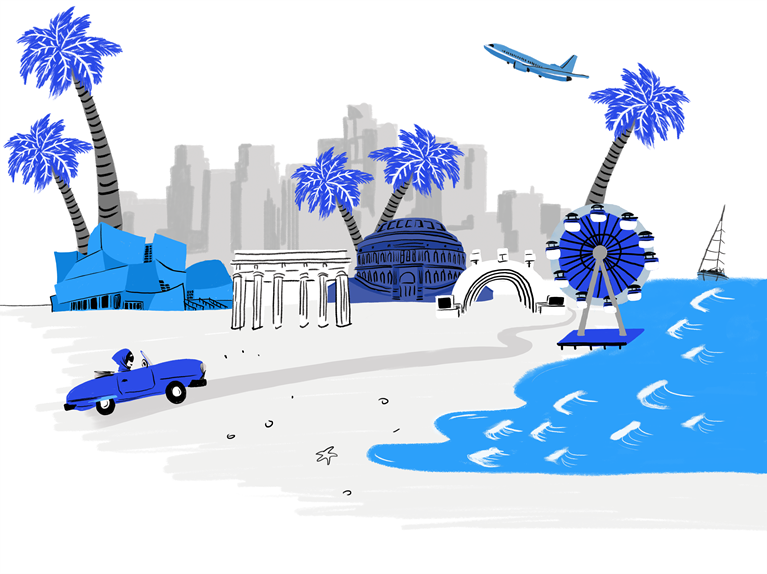
Listen to customers, and take an agile approach
We have found that companies that surpass their peers in customer-experience design tend to share a set of features 10 Benedict Sheppard, Hugo Sarrazin, Garen Kouyoumjian, and Fabricio Dore, “ The business value of design ,” McKinsey Quarterly , October 2018. : they have agile, cross-functional teams that develop and iterate with end users and deliver seamlessly across touchpoints. Companies that deliver at the highest level across those themes recognize real returns, outperforming their peers by nearly 3:1 in revenue and 1.5:1 in return to shareholders. In this time of great uncertainty and fluid demand, it will be more important than ever to listen to travelers and understand their rapidly evolving needs.
While many travel companies have begun to embrace agile principles in IT and digital, these principles are becoming a useful tool across the entire enterprise as we go into the “next normal.” As travel companies manage their new reality, they will need to be nimble. Cross-functional agile squads that break down traditional silos and collaborate more efficiently can help their companies move quickly to address changing traveler needs across the journey. When launching a new initiative, for example, these teams can conduct quick, one-on-one customer interviews—even in the hotel lobby or boarding area—that can be used to cocreate and pilot solutions at a relatively low expense, using metrics like adoption rate and rapid-fire feedback to course correct in real time. 11 For more on agile principles, see Hugo Sarrazin and Belkis Vasquez-McCall, “ Agile with a capital ‘A’: A guide to the principles and pitfalls of agile development ,” February 2018.
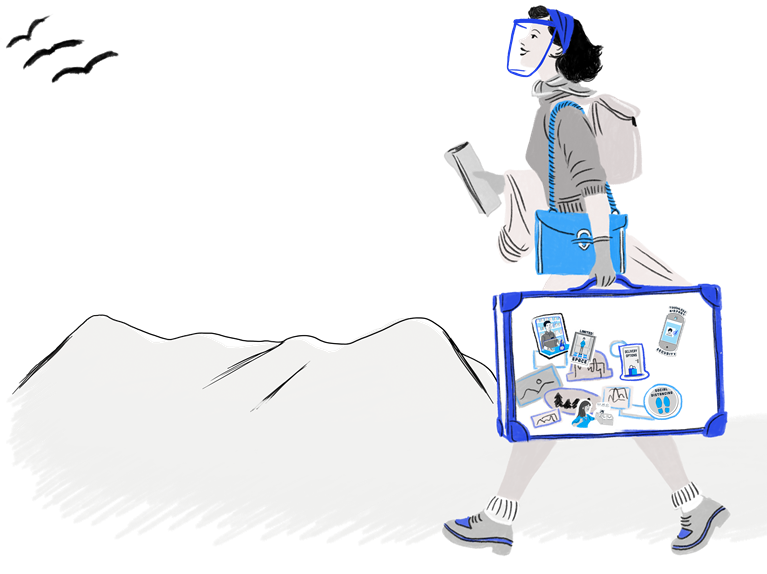
Picture yourself in your favorite vacation spot. Perhaps you’re lying on a beach towel, hiking up a mountain, or skiing down one. Your journey there was different, but the new measures gave you more control and flexibility while ensuring your safety.
The companies that thrive after this crisis will likely be those that work with travelers and employees to cocreate distinctive solutions in a rapid and agile manner, that find new ways to enable choice across the customer experience, and that communicate progress in an authentic and transparent way.
No crystal ball can tell us what the future of travel will be, and we will not find the right solutions to today’s fluid situation overnight. This will take time, patience, and probably many attempts as we learn together. But travel companies need to embrace the challenge to come back better.
Melissa Dalrymple is a partner in McKinsey’s Chicago office, where Ryan Mann is an associate partner. Melinda Peters is a consultant in the New Jersey office and Nathan Seitzman is a partner in the Dallas office.
The authors wish to thank Vik Krishnan, Ellen Scully, Nate Lagacy, Kyle Snyder, Andrew Leon Hanna, Anna Obed, and Luis Diego Cabezas for their contributions to this article.
Explore a career with us
Related articles.
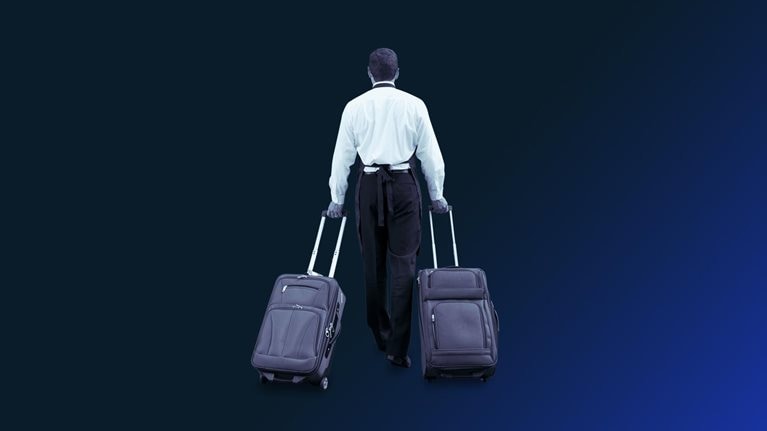
Hospitality and COVID-19: How long until ‘no vacancy’ for US hotels?
A new approach in tracking travel demand

Unveiling the Scope of the Travel and Tourism Industry: A Global Perspective

How to Build a Successful Career in Travel and Tourism Industry

Career In Cultural Tourism 2023 – Job Profile, Salary & Courses

- career in travel industry
- Learn And Travel
- Travel and Tourism
- Travel Courses
- Travel Education
- Travel Inspiration
- Travel Passion
- Travel Smart
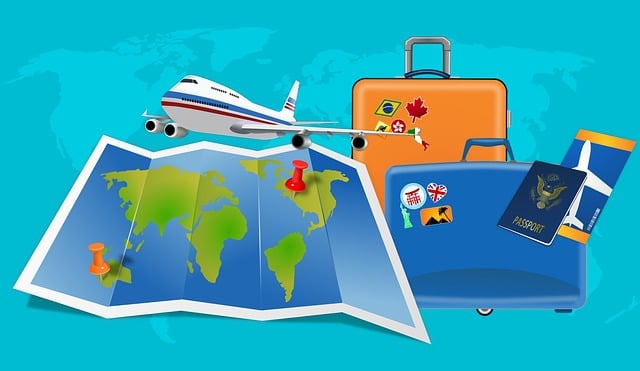
The scope of the travel and tourism industry is vast and ever-evolving. It encompasses a wide range of activities, services, and destinations that cater to the diverse needs and preferences of travelers. From leisure tourism and adventure travel to business trips and educational excursions, the industry offers something for everyone. It includes transportation services such as airlines, trains, and cruises, as well as accommodation options like hotels, resorts, and vacation rentals. Attractions and entertainment venues, such as museums, theme parks, and cultural sites, also fall within its scope. Additionally, travel agencies, tour operators, and online booking platforms globalization, the scope of the travel and tourism industry continues to expand, contribute to the industry’s extensive reach. With increasing connectivity and embracing emerging trends such as sustainable tourism, experiential travel, and digital innovations. As an essential catalyst for economic growth, job creation, and cultural enrichment, this industry holds immense potential for both individuals and societies, fostering understanding, appreciation, and exploration of our diverse world.
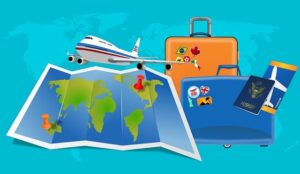
Let’s explore the scope of the travel and tourism industry from a global perspective:
1. International Travel:
The industry facilitates international travel, enabling people to explore different countries and cultures. International tourism involves activities such as leisure vacations, business travel, educational trips, and visiting friends and relatives. It contributes to cross-cultural understanding, global cooperation, and exchange of ideas.
2. Domestic Tourism:
Domestic tourism refers to travel within one’s own country. It includes activities such as visiting tourist attractions, national parks, heritage sites, and participating in local events and festivals. Domestic tourism promotes regional development, supports local businesses, and encourages the preservation of cultural and natural heritage.

3. Economic Impact:
The travel and tourism industry is a major economic driver worldwide. It generates revenue through various sectors, including transportation, accommodation, food and beverage services, entertainment, and attractions. The industry creates jobs directly and indirectly, supporting diverse sectors such as aviation, hotel management, tour operations, and more.
4. Hospitality and Accommodation:
The hospitality sector is a vital component of the travel and tourism industry, playing an essential role in providing services and amenities to travelers. It includes a range of establishments such as hotels, resorts, guesthouses, bed and breakfasts, and homestays. These accommodations offer lodging facilities, dining options, and additional amenities to meet the diverse needs and preferences of travelers.
5. Transportation:
Transportation is an integral component of the travel and tourism industry. It includes air travel, road transport, railways, cruises, and other modes of transportation. Airlines, airports, car rental companies, and public transportation systems contribute to the seamless movement of tourists within and between destinations.
6. Sustainable Tourism:
The concept of sustainable tourism has gained prominence in recent years. It focuses on minimizing negative impacts on the environment, culture, and society while maximizing the benefits of tourism. Sustainable practices include promoting responsible travel, conserving natural resources, supporting local communities, and raising awareness about environmental issues.
7. Travel Agencies and Tour Operators:
Travel agencies and tour operators facilitate trip planning, booking, and coordination of travel services. They provide assistance in selecting destinations, organizing itineraries, arranging transportation, accommodations, and tours. These intermediaries play a vital role in promoting tourism and offering customized experiences to travelers.
8. Government Initiatives and Policies:
Governments across the world recognize the importance of the travel and tourism industry and implement policies to promote its growth. They invest in infrastructure development, marketing campaigns, visa facilitation, and safety regulations to attract tourists and create a conducive environment for the industry.
9. Challenges and Opportunities:
The travel and tourism industry faces various challenges, including geopolitical uncertainties, natural disasters, public health crises, and changing consumer preferences. However, it also presents numerous opportunities for innovation, collaboration, and sustainable development. Emerging trends such as ecotourism, adventure tourism, wellness travel, and digital nomadism are reshaping the industry’s landscape.
10. Technological advancements:
Technological advancements have had a transformative impact on the travel and tourism industry. The introduction of online booking platforms, mobile applications, virtual reality experiences, and digital marketing strategies has revolutionized the way travelers plan and enjoy their trips. These technological innovations have provided convenience and efficiency to both businesses and travelers alike. Furthermore, ongoing technological advancements are expected to further shape the future of the industry. In conclusion, the travel and tourism industry holds immense global significance with its wide-ranging scope. It encompasses diverse activities, including international and domestic travel, hospitality services, transportation, and more. The industry plays a substantial role in driving economies, fostering cultural exchange, and contributing to the overall well-being of societies around the world.
Gaurav Gera
Related posts.

Build A Successful Career in Hotel Management- Jobs and Courses for Hotel Management in India
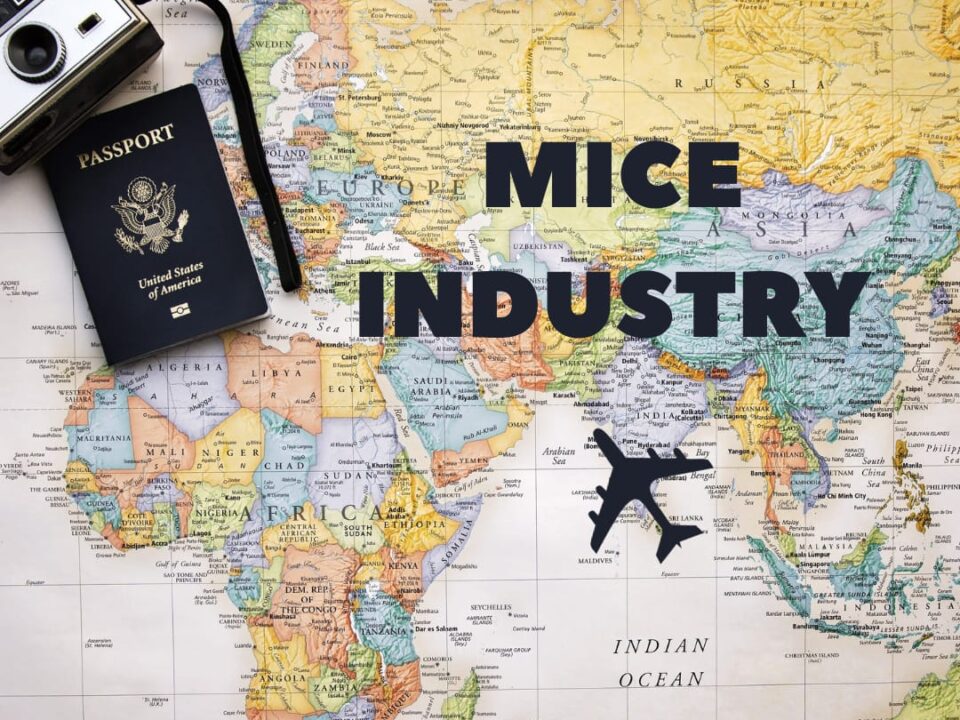
What is the MICE Industry- Components, Job Opportunities, and Required Skills For the MICE Industry
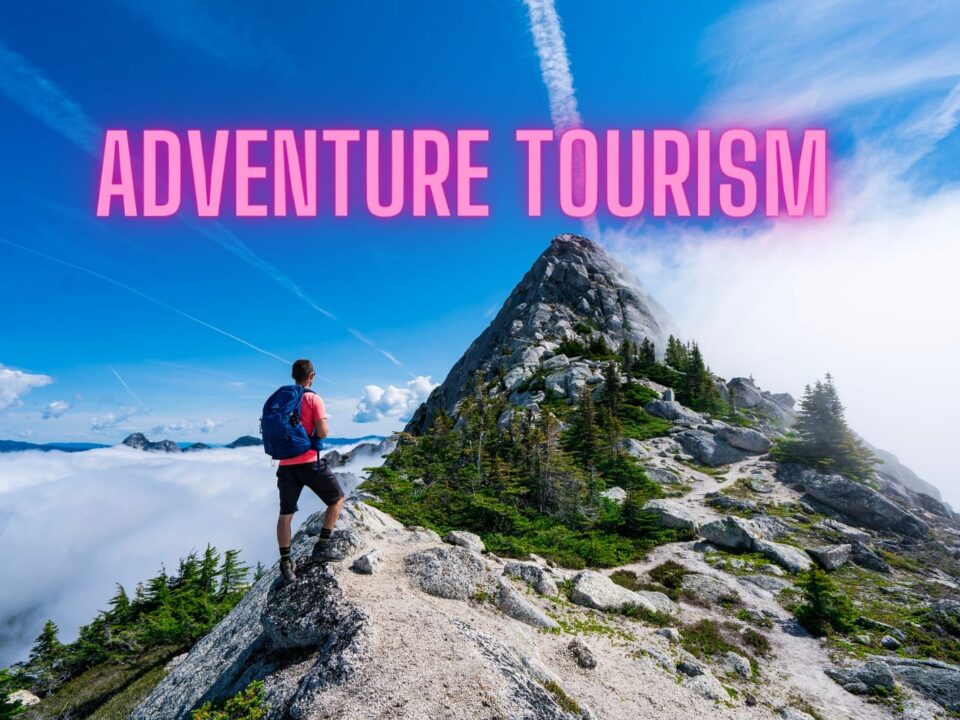
Build a Career in Adventure Tourism- Skills, Jobs, and Salary in Adventure Tourism
Leave a reply cancel reply.
Your email address will not be published. Required fields are marked *
Save my name, email, and website in this browser for the next time I comment.

What next for travel and tourism? Here's what the experts say

In many countries, more than 80% of travel and tourism spending actually comes from the domestic market. Image: Unsplash/Surface
.chakra .wef-1c7l3mo{-webkit-transition:all 0.15s ease-out;transition:all 0.15s ease-out;cursor:pointer;-webkit-text-decoration:none;text-decoration:none;outline:none;color:inherit;}.chakra .wef-1c7l3mo:hover,.chakra .wef-1c7l3mo[data-hover]{-webkit-text-decoration:underline;text-decoration:underline;}.chakra .wef-1c7l3mo:focus,.chakra .wef-1c7l3mo[data-focus]{box-shadow:0 0 0 3px rgba(168,203,251,0.5);} Julie Masiga
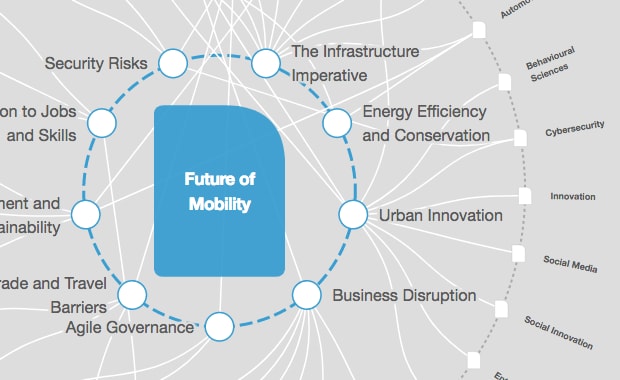
.chakra .wef-9dduvl{margin-top:16px;margin-bottom:16px;line-height:1.388;font-size:1.25rem;}@media screen and (min-width:56.5rem){.chakra .wef-9dduvl{font-size:1.125rem;}} Explore and monitor how .chakra .wef-15eoq1r{margin-top:16px;margin-bottom:16px;line-height:1.388;font-size:1.25rem;color:#F7DB5E;}@media screen and (min-width:56.5rem){.chakra .wef-15eoq1r{font-size:1.125rem;}} Mobility is affecting economies, industries and global issues

.chakra .wef-1nk5u5d{margin-top:16px;margin-bottom:16px;line-height:1.388;color:#2846F8;font-size:1.25rem;}@media screen and (min-width:56.5rem){.chakra .wef-1nk5u5d{font-size:1.125rem;}} Get involved with our crowdsourced digital platform to deliver impact at scale
Stay up to date:.
- In 2020 alone, the travel and tourism sector lost $4.5 trillion and 62 million jobs globally.
- But as the world recovers from the impacts of the COVID-19 pandemic, travel and tourism can bounce back as an inclusive, sustainable, and resilient sector.
- Two experts highlight some of the key transformations in the sector going forward during the World Economic Forum's Our World in Transformation series.
The Travel & Tourism sector was one of the hardest hit by the COVID-19 pandemic, leaving not only companies but also tourism-driven economies severely affected by shutdowns, travel restrictions and the disappearance of international travel.
In 2020 alone, the sector lost $4.5 trillion and 62 million jobs, impacting the living standards and well-being of communities across the globe. Moreover, the halt in international travel gave both leisure and business travellers the chance to consider the impact of their choices on the climate and environment.
Amid shifting demand dynamics and future opportunities and risks, a more inclusive, sustainable and resilient travel and tourism sector can be - and needs to be - built.
The World Economic Forum's Travel & Tourism Development Index 2021 finds that embedding inclusivity, sustainability and resilience into the travel and tourism sector as it recovers, will ensure it can continue to be a driver of global connectivity, peace and economic and social progress.
We spoke to Sandra Carvao , Chief of Market Intelligence and Competitiveness at the United Nations World Tourism Organization (UNWTO), and Liz Ortiguera , CEO of the Pacific Asia Travel Association in Thailand (PATA), and asked them to highlight some of the key areas of risk and opportunity in the sector during an episode of the World Economic Forum's Our World in Transformation series.
Have you read?
Travel & tourism development index 2021: rebuilding for a sustainable and resilient future, towards resilience and sustainability: travel and tourism development recovery, how can we really achieve sustainability in the travel sector, what are some of the top global trends you're witnessing currently in the travel and tourism sector.
Liz Ortiguera: Given the extended lockdown that we had on travel with the pandemic, vacation for friends and relatives (VFR) is now a high priority for people who haven’t been in touch for a long time thanks to the pandemic. So, people are reconnecting. And that kind of links to the second trend, which is multi-purpose or blended travel. Never before, particularly now that we can connect digitally through Zoom, has the ability to work from anywhere enabled travellers to cover multiple purposes, like visits with friends and multiple business trips. So, we'll find that the duration of travel and the length of stay is longer. And third is the continued high focus on safety and wellness which is top of mind for travellers due to the pandemic. All travel is wellness-related now.
Sandra Carvao: I think there is a bigger concern with sustainability, which is very welcome in our industry. Consumers, particularly the younger generation, are much more aware of the impact they have, not only on the environment but also socially and on the communities they live in. We've also seen an increase in expenditure per trip, so I think people are very eager to go outside, and they're staying longer. And on the other side, I think there are some challenges: we’re seeing a rise in late bookings because restrictions can change at short notice and that’s having an impact on the decisions of travellers. This is putting pressure on the industry in terms of planning and anticipating fluctuations in demand.
Social media surveys have shown that travellers who have immersive experiences are more likely to post about them, which is good for the industry.
What is community-based tourism and why is it important?
Sandra Carvao: One of the positive impacts of the pandemic is that people are looking for local experiences and are spending more time with communities. So, the concept of community-based tourism is obviously one that puts the community at the core of every development, ensuring that it's engaged and empowered and that it benefits. At the UNWTO, we worked with the G20 and the Saudi presidency back in 2020 and produced a framework for tourism development in communities, which states that communities need to be part of the planning and management of tourism activities. We need to go beyond traditional definitions of community to a point where the industry leans on partnerships between the public and private sectors and communities.
Liz Ortiguera: In July 2022, PATA is hosting a destination-marketing forum and one of the key themes is community-based tourism. The purpose is really to put the community and authenticity-in-culture activities at the heart of the travel experience. There are benefits for all stakeholders. One is that travellers can have an authentic experience. They're not in overcrowded, touristic locations and they experience something new and unique within the community. These experiences are designed in partnership with communities who get the benefit of financial inclusion, and if activities are designed properly, the reinforcement of their cultural heritage. Governments also engage in economic development more broadly across countries. Another interesting trend is creative tourism, which means you create an experience for tourists to participate in, like a dance lesson, or a cooking lesson. Social media surveys have shown that travellers who have these kinds of immersive experiences are more likely to post about them online and that's good for the industry.
It is important to emphasize that virtual experiences, while they are a fun tool, can never replace visiting a destination.
How is technology and innovation helping to leverage cultural resources?
Sandra Carvao: One interesting trend we’re seeing is that more and more people are booking trips directly, so communities need to be supported to digitize their systems. Education and upskilling of communities are important so that they can leverage digital platforms to market themselves. From the tourists’ perspective, it is important to emphasize that virtual experiences, while they are a fun tool, can never replace visiting a destination.
Liz Ortiguera: People have been living virtually for more than two years. Amazing innovations have emerged, such as virtual reality and augmented reality, and all kinds of applications and tools. But the important thing is the experience. The destination. Real-world experiences need to remain front and centre. Technology tools should be viewed as enablers and not the core experience. And when it comes to staff, technology can really democratize education. There’s an opportunity to mobilize a mobile-first approach for those who are on the frontlines, or out in the field, and can’t easily access computers, but need to get real-time information.

How is the sector dealing with labour shortages and re-employment of the workforce?
Liz Ortiguera: Labour shortages are much more dynamic in North America and in Europe. But it’s having a knock-on effect on Asia. If, for example, their air carriers are limited by staff and they have to cancel flights, which we're very much seeing out of Europe, seating capacity then becomes a limiting factor in the recovery of Asia Pacific. That's the main constraint right now. And compounding that is the rising price of fuel. But people in the Asia Pacific are keen to get reemployed.
Sandra Carvao: Labour shortages are a priority for the sector in countries around the world. Many workers left the sector during the pandemic and the uncertainty that surrounded the measures taken to contain it left many people unsure of whether the sector would recover. It is time to address things like conditions, scheduling, and work/life balance, all things which have been top of mind for workers during the pandemic. As the sector recovers, we need time to bring new hires on board and to train them to take over where those who switched jobs left off.
Are we seeing a growing trend towards domestic tourism?
Sandra Carvao: We’re talking about 9 billion people travelling within their own countries. And in many countries, for example in Germany, more than 80% of the tourism spending actually comes from the domestic market, similarly in countries like Spain and even smaller economies. Whenever it's possible to travel again, domestic markets tend to be more resilient. They kick off first mostly due to perceptions of safety and security issues. As the world economy recovers from the pandemic, there is a good opportunity for nations to rethink their strategy, look at the domestic market in a different way, and leverage different products for domestic tourists.

When it comes to sustainable tourism, how quickly could we mainstream eco-friendly modes of transportation?
Sandra Carvao: Transport is one of the key contributors to energy impacts and tourism. But it's also important that we look at the whole value chain. The UNWTO together with the One Planet Sustainable Tourism Programme just launched the Glasgow Declaration, which includes green commitments from destinations and companies. We’re seeing a strong movement in the airline industry to reduce emissions. But I think, obviously, technological developments will be very important. But it's also very important to look at market shifts. And we can't forget small islands and developing states that rely on long-haul air travel. It’s important to make sure that we invest in making the problem much less impactful.
Liz Ortiguera: 'Travel and tourism' is such a broad encompassing term that it’s not fair to call it an industry: it is actually a sector of many industries. The pandemic taught us how broad the impact of the sector is in terms of sustainability. There's a big movement in terms of destination resilience, which is the foundation for achieving sustainability in the journey to net-zero. We now have standards to mitigate that impact including meetings-and-events (MIE) standards and standards for tour operators. There are multiple areas within our industry where progress is being made. And I'm really encouraged by the fact that there is such a focus not just within the sector but also among consumers.
This interview was first done at the World Economic Forum's studios in Geneva as part of 'Our World in Transformation' - a live interactive event series for our digital members. To watch all the episodes and join future sessions, please subscribe here .
Don't miss any update on this topic
Create a free account and access your personalized content collection with our latest publications and analyses.
License and Republishing
World Economic Forum articles may be republished in accordance with the Creative Commons Attribution-NonCommercial-NoDerivatives 4.0 International Public License, and in accordance with our Terms of Use.
The views expressed in this article are those of the author alone and not the World Economic Forum.
Related topics:
The agenda .chakra .wef-n7bacu{margin-top:16px;margin-bottom:16px;line-height:1.388;font-weight:400;} weekly.
A weekly update of the most important issues driving the global agenda
.chakra .wef-1dtnjt5{display:-webkit-box;display:-webkit-flex;display:-ms-flexbox;display:flex;-webkit-align-items:center;-webkit-box-align:center;-ms-flex-align:center;align-items:center;-webkit-flex-wrap:wrap;-ms-flex-wrap:wrap;flex-wrap:wrap;} More on Industries in Depth .chakra .wef-17xejub{-webkit-flex:1;-ms-flex:1;flex:1;justify-self:stretch;-webkit-align-self:stretch;-ms-flex-item-align:stretch;align-self:stretch;} .chakra .wef-nr1rr4{display:-webkit-inline-box;display:-webkit-inline-flex;display:-ms-inline-flexbox;display:inline-flex;white-space:normal;vertical-align:middle;text-transform:uppercase;font-size:0.75rem;border-radius:0.25rem;font-weight:700;-webkit-align-items:center;-webkit-box-align:center;-ms-flex-align:center;align-items:center;line-height:1.2;-webkit-letter-spacing:1.25px;-moz-letter-spacing:1.25px;-ms-letter-spacing:1.25px;letter-spacing:1.25px;background:none;padding:0px;color:#B3B3B3;-webkit-box-decoration-break:clone;box-decoration-break:clone;-webkit-box-decoration-break:clone;}@media screen and (min-width:37.5rem){.chakra .wef-nr1rr4{font-size:0.875rem;}}@media screen and (min-width:56.5rem){.chakra .wef-nr1rr4{font-size:1rem;}} See all

Agritech: Shaping Agriculture in Emerging Economies, Today and Tomorrow

Confused about AI? Here are the podcasts you need on artificial intelligence
Robin Pomeroy
April 25, 2024

Which technologies will enable a cleaner steel industry?
Daniel Boero Vargas and Mandy Chan

Industry government collaboration on agritech can empower global agriculture
Abhay Pareek and Drishti Kumar
April 23, 2024

Nearly 15% of the seafood we produce each year is wasted. Here’s what needs to happen
Charlotte Edmond
April 11, 2024

How Paris 2024 aims to become the first-ever gender-equal Olympics
Victoria Masterson
April 5, 2024
ColorWhistle
Digital Web Design Agency India

Explore our Market-Fit Services
We ensure to establish websites with the latest trends as we believe that, products whose value satisfies the needs of the market and its potential customers can be efficiently successful.
Quick Links
- About Us – ColorWhistle
- Engagement Models
- Testimonials
- Case Studies
- Agency Services
- Web Development
- Web App Development
- Digital Marketing
- Travel Website Development Services Company
- Real Estate Website Development Services Company
- Education Website Development Services Company
- Healthcare Website Development Services Company
- Hotel and Restaurant Website Development Services
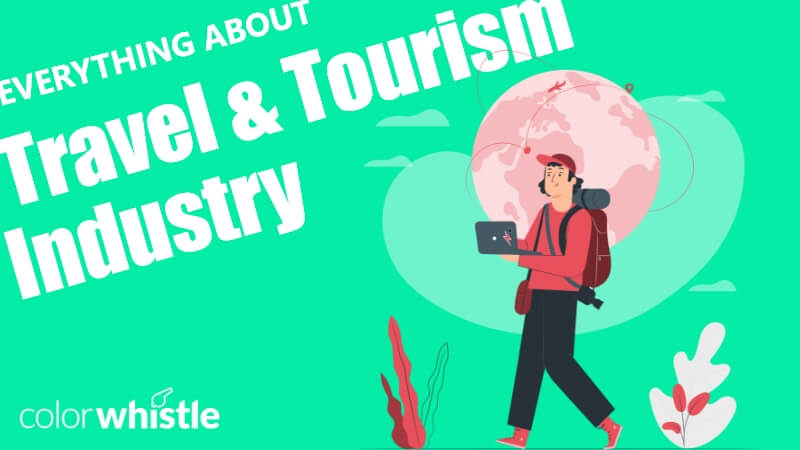
Category: Travel
Date: August 18, 2023
Everything You Need to Know About Travel & Tourism Industry
The travel and tourism industry is one of the biggest and fastest-growing industries in the world. We are still witnessing the continued interest of many people preferring to spend their spare time on travel.
This has given an enormous opportunity for travel and tourism-related business like travel agencies and tour operators to cater to the needs of this emerging demand.
In an effort to help people who want to enter the travel business, we have written this comprehensive introduction blog about the travel and tourism industry. We also regularly share informative resources for people in the travel industry . Do check out our blog section on a regular basis to read information-rich resources.
Let’s dive in.
What is the Difference Between Travel & Tourism Industry?
The terms travel and tourism are often used side by side and are closely linked. However, there are differences between the two. In this blog, we will find out more about the difference between both travel and tourism and the activities that set them apart.
- What is tourism industry? – Tourism is the act of traveling to a different location for either business or pleasure for more than one consecutive year
- What is travel industry? – Travel refers to moving from one location to another. It can be long-distance, short-distance, overseas or domestic travel and can cover a wide variety of different travel purposes.
It is completely understandable that many find it hard to figure out the distinction between both the terms because there seems to be a significant overlap. Many of the businesses and service providers seem to carter for both travel and tourism.
Despite the progressive and adaptive nature of the industry where the changes are evident via new introduction of tourism forms , there is no attempt to develop a commonly accepted definition of travel and tourism.
While we have attempted to define the concept of travel and tourism from a generic perspective, the practical application of the meanings we outlined can be difficult when used for specific types.
We would say that academics and practitioners from the industry have to come up with appropriate definitions so that it will represent the travel and tourism industry that operates today.
Evolution of the Travel & Tourism Industry
Here is a graphic we prepared that highlights the evolution of the travel and tourism industry .
What Are the Sectors and Components Within the Travel and Tourism Industry?
In this section, we will explain the various sectors and components that are present in the travel and tourism industry.
Sectors Within the Travel and Tourism Industry
1. transportation, airline industry.

The transport (accessibility) system is one of the main key parts of the travel and tourism industry. It is considered as a link between tourist generating and tourism destination regions. Some of the major airlines in the world are,
- Emirates Airline
- Jet Airways
- Malaysia Airlines
- Air France KLM
- Southwest Airlines

People give a lot of importance to comfort while traveling. That is why there is a huge rise in companies that provide a variety of vehicles according to requirement and comfort of the clients. Some of the famous car rental companies are,
- Budget Rent a Car
Water transport

Waterways are important to the transportation of people and goods throughout the world. It has played a vital role in drawing different parts of the world closer and is essential to foreign trade. The different types of water transport are,
- Tug boats, Rigs
Bus & coach

Buses and coaches are one of the most important forms of passenger transport around the world. They have been shaping sustainable mobility for more than a century. Here are some of the luxury busses in the world,
- Marchi Mobile EleMMent Palazzo
- Featherlite Vantare Platinum Plus
- Prevost H3-45 VIP
- Foretravel IH-45 Luxury Motor Coach
- Country Coach Prevost

Railways have helped mankind in many ways – in both voyages of commerce and discovery. They are still the most popular form of transport and given the environmental benefits , they will be with us for many years to come. Here are some of the most famous trains in the world,
- Trans-Siberian Express
- Orient Express
- Flying Scotsman
- Golden Arrow
- Maharajas’ Express

This type of transportation has developed in recent years and is going to be quite influential in the years to come. The most famous company offering commercial space tourism is Virgin Galactic .
2. Accommodation

Hotels are one of the most popular forms of accommodations for tourists or anyone who is looking for a place to stay overnight or on a short-term basis. They provide guests with private rooms, bathroom and other facilities. Some of the popular hotels in the world are
- Emirates Palace
- Rancho Valencia Resort & Spa
- The Westin Excelsior
- Burj Al Arab Hotel
Shared accommodations

Shared accommodations are commonly defined as two or more people living in accommodation together. Usually, each person will have their own bed and will share certain common areas such as kitchens and bathrooms. This is a budget-friendly option for tourists. Some of the most popular shared accommodation service providers are,
- OneFineStay

Camping or temporary shelter is an outdoor accommodation which is in the form of a tent. Travelers who camp will also prefer to stay at a commercial campsite which has additional facilities. Some of the popular camping sites in the world are,
- Mount Cook National Park, New Zealand
- Devon, England
- Loch Lomond & The Trossachs, Scotland
- The Alps, France
- Hossa National Park, Finland
Bed and breakfast (B&B)

Bed-and-breakfast are cozy accommodations that are inviting, intimate environment where innkeepers are often present to look after every guest. In some cases, the owner of the B&B may live in the building too. Some of the most popular B&B’s in the world are,
- Le Quartier Sonang — Amsterdam
- Bed and Breakfast by the Beach — Bournemouth, England
- Arbor Guest House — Napa Valley, California
- Glendon Guest House — Derbyshire, England.
- Cliffside Inn Bed And Breakfast — Newport, R.I.

Cruise is a combined form of transportation and accommodation. People who go on cruise travel will have their own cabin where they can rest and relax. A major part of the passenger’s time is spent on the cruise ship. Some of the most popular cruise destinations in the world are,
- Avignon, France
- Glacier Bay, Alaska
- Vienna, Austria
Timeshare accommodation

Timesharing is shared ownership of a vacation property. A management company handles the construction of a property and sells shares where buyers can spend a specific amount of time on the property usually 1 week per year. Famous timeshare resorts in the world are,
- The Ritz Carlton Club
- The Disney Vacation Club
- The Marriott Vacation Club
- The Hilton Grand Vacations Club
- The Hyatt Residence Club
3. Food & Beverage
Restaurants.

The restaurant and dining business is equally important as the scenery, accommodations, and destination areas because tourists want to engage in local culture when they go on a holiday. If you have any plans to create a restaurant website we have written a detailed blog about the essential elements a restaurant website must-have . Here are some of the famous restaurants in the world,
- Osteria Francescana
- El Celler de Can Roca
- Eleven Madison Park
Bars & cafés

Bars & Cafés give a relaxed environment for travelers to eat and drink. Bars tend to focus on selling alcoholic drinks and soft drinks whereas cafés sell hot drinks and snacks. We have also written a detailed blog that has an amazing list of bakery & cafés website design inspiration , do check it out. Some of the world-famous bars & cafés are,
- The Broken Shaker
- Bell in Hand Tavern
- El Floridita
- Sant’Eustachio il Caffe
- La Cafeotheque

Nightclubs are commercial establishments that will stay open until late at night. These places combine music, dance and alcohol sales. Some of the world-famous nightclubs are,
- Green Valley
4. Entertainment

Casinos are similar to indoor amusement parks, but it is for adults. It has many games of chance such as slot machines, blackjack, roulette, craps, keno and baccarat provides billions of dollars in revenue for casinos. Some of the world-famous casinos are,
- WinStar World Casino
- Venetian Macau
- City of Dreams

Shopping plays a vital role in the travel and tourism industry as it caters the basic necessities and it is also a form of entertainment. Many people specifically travel to experience shopping in those destinations. Some of the world-famous shopping destinations are,
- New York City

Museums have objects and materials of cultural, religious and historical importance in one place. They are presented to the public for education and enjoyment. Some of the world-famous museums are,
- Zeitz Museum of Contemporary Art
- National Gallery of Canada
- Tate Modern
- The Metropolitan Museum Of Art
- Mauritshuis
Theme parks

A theme park has various attractions, such as rides, games and events for entertainment. They will also have shops, restaurants and other entertainment outlets. Such types of parks can be enjoyed by adults, teenagers and children. Some of the famous theme parks in the world are,
- Universal Studios
- Pleasure Beach
- Alton Towers
Components of Travel Services
Travel agency.
A travel agency sells or arranges transportation, accommodations, tours and trips for travelers. Some of the functions of a travel agency are to recommend a particular service that will be suitable for the traveler, provide assistance in procuring travel documents, process travel arrangements and give assistance in case of refunds or cancellations.
Online travel agency (OTA)
An OTA is a travel website that specializes in providing travel services to customers including flights, hotels, car rentals, cruises, activities, and packages. These websites have in-built booking systems that allow users to instantly book.
Some of the popular examples of OTAs are Expedia, Priceline and Orbitz. We have also written a detailed blog about what is an online travel agency and the benefits of partnering with them. If you are planning to create an OTA website, you can take inspiration from these 100+ travel websites .
Tour operators
A tour operator will combine tour products and travel services together to offer packaged holidays to the customers. Usually, a packaged tour will have a combination of air travel, accommodation and entertainment. The tour operator will provide organized activities for customers.
Destination marketing organizations (DMO)
DMO’s represent destinations and help to promote a particular destination as an attractive one by creating a long-term travel and tourism strategy.
Through this, they try to strengthen the economic position of that place which in turn will improve the employment opportunity for the people in that region. At ColorWhistle, we can help any type of travel and tourism provider to improve online visibility . All you have to do is, just get in touch with us to learn how we can help.
Drive Conversions and Boost your Business with Expert Travel Website Development.
How can colorwhistle’s digital solutions help travel and tourism businesses.
One thing that is common in this blog is that when we were researching to find the famous travel-related product or service provider in the world, each one of the big players had amazing websites. Those websites were the gateway through which those players showed their expertise to the world.
That is where ColorWhiste can help. We will help you to present your capability to the online world. If you are Solopreneur looking to enter the travel arena or growing or established travel business, we understand that improving your current state of affairs will always be on your mind.
Our amazing team at ColorWhistle can offer professional assistance. We have a powerhouse of multi-talented people experienced in web development and digital marketing .
If it is redesigning your existing website or creating a new one, we can polish your online image in no time. Get in touch with us today and let’s talk business!
In quest of the Perfect Travel Tech Solutions Buddy?
Be unrestricted to click the other trendy writes under this title that suits your needs the best!
- Best Tour Operators USA
- Online Travel Marketing Techniques
- Travel Insurance Agency Technology
- Best Tour Operators Europe
- Travel Tourism Trends
- Travel Marketing Campaigns
- Medical Tourism Business
Related Posts

How Predictive Maintenance Can Help the Travel Industry
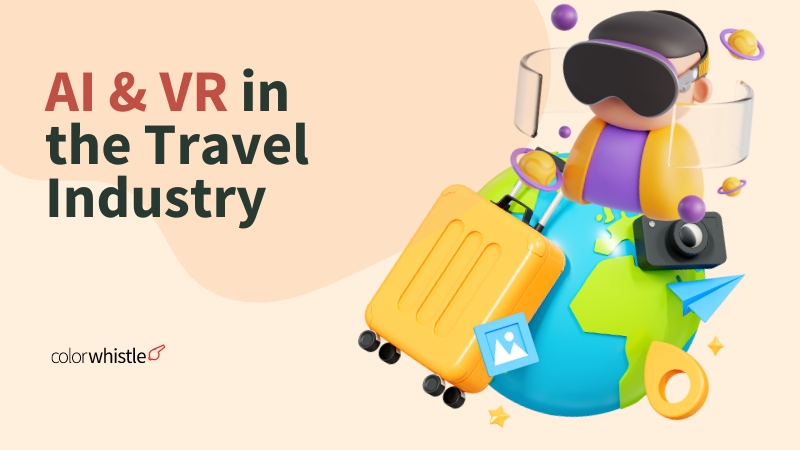
Exploring the World Through AI and VR in the Travel Industry
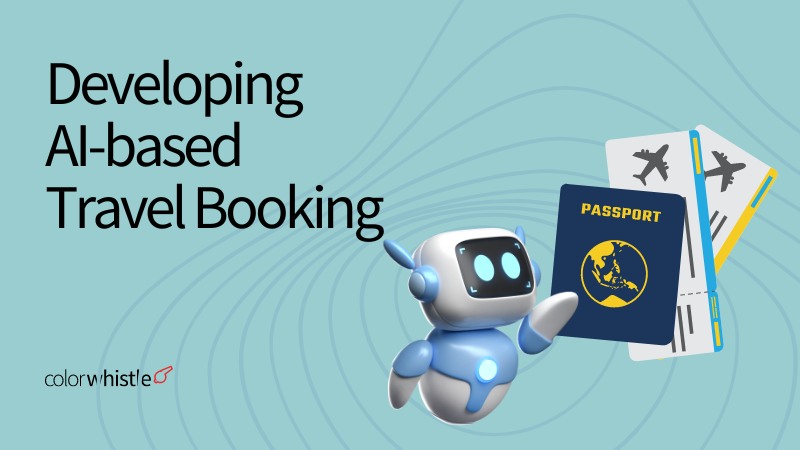
How AI-based Travel Booking Applications Can be Developed?
About the Author - Anjana
Anjana is a full-time Copywriter at ColorWhistle managing content-related projects. She writes about website technologies, digital marketing, and industries such as travel. Plus, she has an unhealthy addiction towards online marketing, watching crime shows, and chocolates.
View Our Services
Have an idea? Request a quote
Share This Blog
Leave a Reply Cancel reply
Your email address will not be published. Required fields are marked *
Ready to get started?
Let’s craft your next digital story

Sure thing, leave us your details and one of our representatives will be happy to call you back!
Eg: John Doe
Eg: United States
Eg: [email protected]
More the details, speeder the process :)
- Stand Up for Free Enterprise
The State of the Travel Industry in 2023: Current Trends and Future Outlook
Kentucky chamber ceo: we must protect the free enterprise system, how franchising can help fuel the american dream, microsoft president: responsible ai development can drive innovation, suzanne clark's 2024 state of american business remarks, rhythms of success: the free enterprise tune of a small business.
January 12, 2023
Featured Guest
Tony Capuano CEO, Marriott International, Inc.
Chip Rogers President & CEO, American Hotel & Lodging Association (AHLA)
As COVID-19 restrictions have continued to ease, the travel and hospitality industries have seen a resurgence in customers. Companies like Marriott have seen percentage increases in revenue and rate, even topping pre-pandemic levels.
During the U.S. Chamber of Commerce’s 2023 State of American Business event, Chip Rogers, President and CEO of the American Hotel and Lodging Association , and Tony Capuano, CEO of Marriott International, Inc. , sat down for a fireside chat. Read on for their insights on the post-COVID state of the travel industry, a shifting customer base, and the outlook for 2023 and beyond.
2022 Demonstrated the Power and Resilience of Travel
After declines amid the pandemic, 2022 brought about a positive recovery for the travel industry.
“[2022] reminded us of the power and resilience of travel,” said Capuano. “If you look at the forward bookings through the holiday season, [you’ll see] really strong and compelling numbers … so we’re really encouraged.”
“The only caveat I would give you about that optimism is, as you know, the booking windows are much shorter than we’ve seen them in a pre-pandemic world,” he added. “So those trends can change more quickly than we’re accustomed to."
The ‘Regular’ Customer Segments Are Shifting
At the start of pandemic recovery, industry leaders believed leisure travel would lead travel recovery, with business travel closely behind and group travel at a distant third, according to Capuano. While some of those predictions have held, others have shifted.
“Leisure [travel] continues to be exceedingly strong, and group [travel] has surprised to the upside,” he explained. “Business travel is perhaps the tortoise in this ‘Tortoise and the Hare,’ slow-and-steady recovery.”
However, Capuano noted customer segments are becoming less and less strictly defined.
“[There’s] this trend we've seen emerge over the pandemic of blended trip purpose … [where] more and more folks are combining leisure and business travel,” he said. “If this has staying power, I think it’s absolutely a game changer, as we get back to normal business travel and hopefully maintain that leisure travel.”
To accommodate this shifting demand, Marriott has focused on expanding offerings to accommodate both the business and leisure sides of travelers’ trips.
“[We’ve had] a very big focus on [expanding bandwidth], so that if [we’ve] got 300 rooms full of guests on Zoom calls simultaneously, we’ve got the bandwidth to cover it,” Capuano added. “[We’re also] being more thoughtful about fitness, leisure, and food and beverage offerings — and having the flexibility to pivot those offerings as somebody sheds their business suit on Thursday and changes into shorts and flip flops for the weekend.”
2023 Offers Hope for Continued Growth in the Travel and Hospitality Sectors
As the travel and hospitality sectors continue to grow and shift in the post-pandemic era, Capuano shared reasons for optimism in 2023.
“Number one, it's our people,” he emphasized. “When you see their passion, their enthusiasm, their resilience, their creativity, and just how joyful they are to have their hotels full again … it's hard not to be filled with optimism.”
“If you look at how far the industry has come over the last few years,” Capuano continued, “any lingering doubts folks may have had about the resilience of travel — and about the passion that the general public has to explore cities and countries — it's hard not to be excited about the future of our industry.”
- Post-Pandemic Work
From the Series
State of American Business
View this online

What does a travel agency do?
Disclaimer: Some posts on Tourism Teacher may contain affiliate links. If you appreciate this content, you can show your support by making a purchase through these links or by buying me a coffee . Thank you for your support!
What does a travel agency do? You will almost definitely have heard of travel agencies if you have ever booked a holiday or have an interest in the tourism industry. But what exactly is a travel agency, and what do they do?
What is a travel agency?
Independent travel agents, online travel agencies , visitor information centres, other types of travel agency, what can a travel agency book, big names in the travel agency industry, travel agency business model, a brief timeline of travel agencies, further reading.
A travel agency is essentially the ‘middle man’ between travel companies and the general public i.e consumers. They book all sorts of travel-related experiences for customers on behalf of larger companies.
The main aim of a travel agency is to make the booking process simpler for the public, who might lack the time or confidence to book trips themselves.
Types of travel agencies
So what does a travel agency do? It mostly depends on what type of travel agency you’re looking at. This can be broken down into the following types…

An independent travel agent is the type you’ll see on Instagram or with their own Facebook pages, their feeds full of snaps from Amsterdam, Bali , or New York City. They tend to partner with a ‘host agency’, who will take a portion of the agents’ commission themselves in exchange for letting them use the company software and access their commission. Travel agents are also able to recruit other people, and in turn get a cut of their commission too. In this way, independent travel agencies tend to be a type of multi-level marketing scheme.
Online travel agencies are much more consumer-focused. They allow individual customers to book their own travel, but as a package or with the added protection from ATOL and ABTA. They act as a broker, allowing you to input your dates, desired destination(s), what board basis you wish to travel and so on. The site then pulls together a package deal, allowing you to book everything in one go with access to booking details so you can make amendments and keep up to date with any changes.
While these don’t offer flights and hotels generally, visitor or tourist information centres are found within cities or tourist destinations. They provide advice, maps, discounts and booking services for tours and excursions such as open top bus tours. These are usually run by local or national governments, or specific tourist boards. They are great for recommendations when travelling somewhere new!
Hotel concierge services work in this same way, often getting commission for booking trips for guests.
I won’t go into too much detail here, but there are other types of travel agencies too. You can learn more in this post about the different types of travel agents .
Overall, what does a travel agency do?
A travel agency does a multitude of things. During non-peak times, they will mostly spend their days researching new or upcoming tourist destinations and what makes them so great, advertising them as somewhere people can book future holidays to.
Travel agencies are also required to keep up to date with safety information for various destinations. They do plenty of research meaning they can tell customers about the best places to go, what they can do while they’re there, what documents they need and so on. This is particularly important now, as travel advice is ever-changing with regards to political conflicts and public health.
But during peak times and in the run-up to these times, travel agents will be busy actually booking trips. Nowadays they mostly do everything via the computer, using the internet to put holiday packages together which include at least the basics – flights and accommodation – for one price. However, they also call travel companies directly in order to get better deals or to see if there are rooms or seats available which might not be showing online for whatever reason. Because of this, travel agencies and agents tend to have great relationships with particular brands.

Travel agents can book much more than just flights and accommodation. Not all of them can book all of these experiences or features, but it is definitely worth asking if you are using a travel agency to book your next vacation.
- Flights – short haul, long haul, & various classes
- Accommodation – hotels, apartments, and villas
- Airport transfers
- Executive airport lounges
- Airport parking
- Cruises – river and ocean
- Car rentals
- Travel insurance
- Excursions and tours
- Taxi services
- Currency exchange
- Train tickets
- Theme park & water park tickets e.g Disneyworld and Universal in Orlando, Florida
They will also advise on public transport services and timetables, as well as arranging for medical items to be delivered and any access requests you have.
Most travel agencies are actually online, and many of us use them regularly. There are still some in-store travel agencies, but with the impact of both modernisation and the Covid-19 pandemic the majority are online now. Below are some big names within the industry which you will likely recognise.
Expedia – founded by Microsoft in 2001
Cruise.com – specifically for booking cruises
American Express Travel – allows you to earn & use points when booking
Audley Travel – the largest operator in tailor-made travel
loveholidays – a British company founded in 2012
Lastminute.com – offering cheaper travel when you book last minute
Kiwi.com – specifically for booking air and ground transport
Booking Holdings – these are a travel technology company who own Booking.com, Cheapflights, OpenTable and more
Now we’ve looked at the question of ‘ what is a travel agency’, let’s take a look at the generic business model. Generally, travel agencies work in one of two ways. The first way is by receiving commission from the companies they book experiences with for customers. For example, if you were to use a travel agency to book your next holiday which included flights, a hotel stay and a transfer to and from the airport this is three separate components which will be booked through three different companies. The travel agency will receive commission from each of the three companies. There may be other benefits and incentives offered by the travel companies. Commission rates and these benefits mean that travel agencies are more likely to use some companies more so than others who might offer them less in exchange.
Alternatively, travel agencies will charge a fee for their services. This makes it more expensive for consumers to book trips through travel agents and agencies than it would to book themselves. However, as some people don’t feel confident booking themselves, many are happy to pay this additional cost. Holidays booked through travel agencies often come with the added benefit of being ATOL and ABTA protected.
- Cox & Kings were the first travel agency, was established in 1758
- Abreu Agency was the first public travel agency, was established in 1840
- Thomas Cook , one of the most famous travel agencies, was founded in 1841
- Brownwell Travel, the first travel agency in the US, was established in 1895
- Nippon Travel Agency was the first travel agency in Japan, established in 1905
- Intourist became the official state travel agency of the Soviet Union in 1929
- The first travel agency in Australia which went on to become Helloworld Travel, was established in 1951
- Henderson Travel Service became the first Black-owned travel agency, taking Black tourists to various African countries, in 1955
- American Airlines’ Sabre unit created a direct-to=consumer booking tool for flights, hotels and cars in the early 1980s
- Mode Tour became the first travel agency in South Korea, established in 1989
- Hotel Reservations Network, which went on to become Hotels.com, was established in 1991 – at this point, hotels didn’t pay a lot of commission so it didn’t take off
- Travelweb.com, the first online hotel directory, launched in 1994
- The Internet Travel Network sold the first airline ticket online in 1995
- Expedia launched in 1996, funded by Microsoft, and are now one of the biggest travel agencies
- In 2007, as the iPhone was released, more bookings were made online because mobile apps were now in use
- Airbnb was established in 2008
- HotelTonight, specifically for instant same-day hotel room bookings, was launched in 2011
If you enjoyed this article explaining what does a travel agency do, then I am sure you will enjoy these articles too-
- What is a tour operator and how does it work?
- The 3 types of travel and tourism organisations
- 150 types of tourism! The ultimate tourism glossary
- The 9 types of tourist destinations
- 50 fascinating facts about the travel and tourism industry
Liked this article? Click to share!
What does a travel agent do?
Would you make a good travel agent? Take our career test and find your match with over 800 careers.
What is a Travel Agent?
A travel agent assists individuals or groups in planning, organizing, and booking various aspects of their travel arrangements. They act as intermediaries between travelers and travel suppliers, such as airlines, hotels, car rental companies, and tour operators. Travel agents have in-depth knowledge of different destinations, travel options, and industry trends, which they leverage to provide personalized recommendations and advice to their clients.
One of the primary roles of a travel agent is to help clients navigate the complex world of travel. They listen to their clients' preferences, budget constraints, and desired experiences, and then work towards creating a tailored itinerary that meets their needs. Travel agents handle tasks such as booking flights, accommodations, ground transportation, and excursions, ensuring that all the necessary arrangements are made smoothly. They can also provide valuable insights on visa requirements, travel insurance, and local customs, helping travelers make informed decisions and avoid potential pitfalls.
What does a Travel Agent do?

Travel agents possess extensive knowledge and expertise in the travel industry, including destinations, transportation options, accommodations, and activities. This expertise allows them to provide valuable advice and guidance to travelers, helping them make informed decisions and create well-planned itineraries that meet their specific needs and preferences. They also have access to a wide range of resources and tools that enable them to efficiently search for the best deals, discounts, and promotions available. They can often secure exclusive rates and packages, saving their clients both time and money.
Duties and Responsibilities Here are some common tasks and responsibilities associated with being a travel agent:
- Client Consultation: Travel agents engage in thorough consultations with clients to understand their travel preferences, requirements, and budget. They ask relevant questions to gather necessary information and provide personalized recommendations based on the client's needs.
- Itinerary Planning: Based on client preferences, travel agents create detailed travel itineraries that include destinations, transportation options, accommodations, and activities. They consider factors like travel dates, budget constraints, and any specific requests from clients.
- Reservation and Booking: Travel agents handle the booking process for flights, hotels, rental cars, and other travel-related services. They ensure that all bookings are made accurately and efficiently, securing the best available rates and deals for their clients.
- Travel Documentation and Logistics: Travel agents assist clients in obtaining necessary travel documents such as passports, visas, and travel insurance. They provide guidance on the documentation process and ensure that clients have all the required paperwork in order. Agents also handle logistical aspects like seat assignments, baggage allowances, and transportation arrangements.
- Knowledge of Destinations: Travel agents possess extensive knowledge about various destinations, including popular attractions, local customs, weather conditions, and safety considerations. They provide valuable information and recommendations to clients, enabling them to make well-informed decisions about their travel plans.
- Customer Service: Travel agents offer exceptional customer service throughout the entire travel process. They address client inquiries, resolve any issues or concerns that may arise, and provide support during the trip. Agents act as a point of contact for emergencies and assist clients in making alternative arrangements if necessary.
- Stay Up-to-Date with Industry Trends: To provide the best service to clients, travel agents stay updated with the latest industry trends, travel regulations, and changes in travel technology. They attend industry conferences, participate in training programs, and conduct research to ensure their knowledge is current.
- Sales and Marketing: Some travel agents engage in sales and marketing activities to attract new clients and promote travel packages and services. They may participate in trade shows, develop promotional materials, and utilize online platforms to reach a wider audience.
- Financial Management: Travel agents handle financial transactions related to travel bookings, including processing payments, issuing refunds, and managing invoices. They maintain accurate records of financial transactions and ensure compliance with accounting procedures.
- Continuous Learning: Travel agents continuously enhance their skills and knowledge by staying updated on travel industry trends, new destinations, and emerging technologies. They actively seek opportunities for professional development to provide the best possible service to their clients.
Types of Travel Agents There are various types of travel agents, each specializing in different aspects of travel and catering to specific clientele. Here are some common types of travel agents and what they do:
- Leisure Travel Agents: Leisure travel agents focus on organizing vacations and leisure trips for individuals, families, or groups. They assist clients in planning and booking all aspects of their leisure travel, including flights, accommodations, tours, and activities. Leisure travel agents may specialize in specific types of travel, such as beach vacations, cruises, adventure travel, or luxury travel.
- Corporate Travel Agents: Corporate travel agents primarily cater to business travelers and companies. They handle the complex travel needs of corporate clients, including booking flights, arranging accommodations, managing itineraries, and coordinating travel logistics. Corporate travel agents are familiar with business travel policies, negotiated rates, and preferred vendors to ensure cost-effective and efficient travel arrangements for their clients.
- Group Travel Agents: Group travel agents specialize in organizing travel for large groups, such as family reunions, weddings, school trips, or corporate retreats. They handle group bookings for flights, accommodations, transportation, and activities, negotiating group rates and coordinating logistics to accommodate the specific needs and preferences of the group.
- Tour Operators: Tour operators design and operate pre-packaged tours and travel itineraries. They create comprehensive tour packages that include transportation, accommodations, guided tours, and activities. Tour operators often work with travel agents to sell their tour packages, providing them with a ready-made product to offer their clients.
- Destination Specialists: Destination specialists focus on specific regions, countries, or cities. They have in-depth knowledge of the destination's culture, attractions, local experiences, and logistical considerations. Destination specialists provide expert advice and create customized itineraries for travelers seeking in-depth exploration of a particular destination.
- Online Travel Agents (OTAs): Online travel agents operate through internet platforms and websites, offering a wide range of travel services. They allow customers to search, compare, and book flights, hotels, rental cars, and other travel services online. Online travel agents may also provide customer support and assistance through online chat or call centers.
- Niche Travel Agents: Niche travel agents specialize in specific types of travel, catering to niche markets or specialized interests. Examples include adventure travel agents, luxury travel agents, honeymoon specialists, culinary travel agents, or eco-tourism experts. These agents have extensive knowledge and expertise in their niche area, curating unique experiences and tailored itineraries for clients with specific interests.
Are you suited to be a travel agent?
Travel agents have distinct personalities . They tend to be enterprising individuals, which means they’re adventurous, ambitious, assertive, extroverted, energetic, enthusiastic, confident, and optimistic. They are dominant, persuasive, and motivational. Some of them are also conventional, meaning they’re conscientious and conservative.
Does this sound like you? Take our free career test to find out if travel agent is one of your top career matches.
What is the workplace of a Travel Agent like?
The workplace of a travel agent can vary depending on their specific employment arrangement. Some travel agents work in traditional brick-and-mortar travel agencies, which may be part of a larger travel company or operate independently. In these settings, travel agents typically have a physical office space with workstations, computers, and travel industry resources such as brochures, destination guides, and reservation systems. They may have a reception area to welcome clients and conduct in-person consultations.
With the increasing prevalence of remote work and online booking platforms, many travel agents now have the flexibility to work from home or in virtual offices. They utilize technology, such as laptops, smartphones, and high-speed internet, to communicate with clients, access travel resources, and make online bookings. Virtual travel agents often communicate with clients via phone, email, or video conferencing, offering the convenience of remote consultations.
Travel agents also frequently visit destinations, attend industry conferences, and participate in familiarization trips organized by travel suppliers. These opportunities allow them to gain firsthand experience, build relationships with suppliers, and stay updated on the latest travel trends. While travel agents spend a significant amount of time working at their desks, they also have the chance to explore and experience the destinations they recommend to their clients.
In terms of work hours, travel agents may have a standard office schedule, working weekdays during regular business hours. However, they may also need to be flexible, accommodating clients in different time zones or assisting with emergency situations outside of regular office hours. The workload of travel agents can vary throughout the year, with peak periods during holiday seasons or when there are significant events or festivals happening in popular destinations.
Frequently Asked Questions
Pros and cons of being a travel agent.
Being a travel agent can be an exciting and rewarding career for individuals who are passionate about travel and enjoy helping others create memorable experiences. However, like any profession, there are pros and cons to consider.
- Travel Opportunities: One of the major advantages of being a travel agent is the exposure to diverse travel opportunities. Travel agents often have the chance to visit destinations, experience different cultures, and explore new places as part of their job. This firsthand experience not only enhances their knowledge but also allows them to provide valuable insights and recommendations to clients.
- Personal Satisfaction: For individuals who are passionate about travel and helping others, being a travel agent can be personally fulfilling. The ability to create personalized itineraries and witness the joy and excitement of clients as they embark on their dream trips can be highly rewarding.
- Knowledge and Expertise: Travel agents develop a deep understanding of destinations, travel products, and industry trends. They stay up-to-date with the latest information, including visa requirements, safety advisories, and emerging travel destinations. This expertise allows them to provide valuable advice and recommendations to clients, ensuring they have well-planned and memorable travel experiences.
- Building Relationships: Travel agents have the opportunity to build strong relationships with clients, travel suppliers, and industry professionals. They can establish a network of contacts that can enhance their business and open doors for collaboration and future opportunities.
- Industry Changes and Competition: The travel industry is constantly evolving, with new technologies, online booking platforms, and dynamic pricing models. Travel agents must stay updated with these changes and adapt their business practices accordingly. The rise of online travel agencies and self-booking options has increased competition, requiring travel agents to differentiate themselves and provide added value to their clients.
- Workload and Time Management: The travel industry can be demanding, especially during peak travel seasons. Travel agents may need to work long hours, including evenings and weekends, to accommodate client needs and handle emergencies. Proper time management skills are essential to balance the workload and maintain a healthy work-life balance.
- Pressure for Exceptional Customer Service: Travel agents are expected to deliver outstanding customer service consistently. They must handle client inquiries, resolve issues, and manage expectations throughout the travel process. This level of customer service can be challenging, particularly when dealing with unforeseen circumstances or dissatisfied clients.
- Commission-Based Income: While some travel agents receive a salary or hourly wage, others rely on commission-based income. This means their earnings are directly tied to the bookings they secure for clients. It can take time to build a client base and establish a steady income stream, especially in the early stages of a travel agent's career.
Travel Agents are also known as: Travel Consultant
Why travel – What is the purpose of travel?

Why do people travel?
Have you ever been asked: "Why do you travel?" Maybe you even asked it yourself?
Do you remember your answer? Was it something like:
"We love it."
"It is what we need to do."
For many, answering this question turns out to be difficult. Even if it is somewhat clear to you, explaining it to others - especially to those who are not infected by the travel bug - is a considerable challenge.

"Is it simply a way to relax?" Why not go fishing for a day or book a spa treatment instead?
"Can we reduce it to the adrenaline rush we might feel?" If that is the case, we can also go on a roller coaster ride.
What is the purpose of travel?
As a psychologist, neuroscientist and someone who loves to travel I had to find a better answer.
According to scientists
Researcher Filep Sebastian makes a strong case that "a fulfilling travel experience is not only about satisfactions. It is also about how personally meaningful we found our travel activities" .
The purpose of travel is connected with building social relationships, opportunities to learn and grow, and commitment . It gives us the chance to be truly engaged in an activity, to develop new skills and to discover new cultures. It brings us closer to ourselves and others.
In other words, all the things we need to increase our resilience !

According to long-term travelers
Konrad Waliszewski asked long-term travelers why they travel. He received responses like:
“It has deepened my life” “My perspective has shifted” “It opens up your possibilities and your horizons and the kinds of conversations you can have, the kinds of experiences you can have” “It changes how I see and interact with nearly every aspect of the world around me” “I travel to learn” “It provides context apart from me”

Our brain filters constantly all the information around us. It decides how we experience and interpret the world . What we see, hear and feel depends not only on our senses. It also strongly build upon what we believe, value, know and on our ability to imagine alternatives . On top of all that our brain is developed for challenges; we need them to feel good. By submerging ourselves in new cultures, environments, culinary traditions,... we enrich ourselves with new frameworks for comparison and give our world room to grow.
That what makes people different, we find intriguing. Things we don’t understand, we want to figure out. Places unknown to us, we will explore.
Travel graces us with unique opportunities to (re)discover our dreams and talents, and to share these with others .
"The meaning of life is to find your gift. The purpose of life is to give it away.” – Pablo Picasso

What are you waiting for? Go out there and explore!
Happy travels!
Discover more:
The Travel Brain Series >>
Related post: Regret (not) traveling the world?
Maybe you like these books as well:

13 thoughts on “ Why travel – What is the purpose of travel? ”
You get more open minded and independent. Very nice article and quite motivational. Thanks for sharing such great points.! I agree with them all and found that traveling abroad.You can visit travel
Thanks for the wonderful reply. Happy travels in South Africa! One day we will make it over there.
Cheers, Nicole & Elmer
Can I asked what book of Filep Sebastian can I read this sentences “a fulfilling travel experience is not only about satisfactions. It is also about how personally meaningful we found our travel activities”.
The purpose of travel is connected with building social relationships, opportunities to learn and grow, and commitment. It gives us the chance to be truly engaged in an activity, to develop new skills and to discover new cultures. It brings us closer to ourselves and others.
It’s not from a book but from an academic article; is the link not working?
Hi Nicole, Your article is inspiring. It makes one travel more, can you suggest places if I want to travel to India? Keep up the good work.
I am Travel Agency Owner and have Travel many places over my 55 years in the business and I totally agree that travel definitely broadens my global horizons and helps me understand how other people feel about the world we live in and it makes me a better world citizen and revived my souls and physic. Travel is a breath for the soul
- Pingback: traveling is my life – tika Traveling
Just read your article. Was researching bit and pieces for a presentation to ‘The Cycling Festival’ in the UK entitled ‘…and the aftermath is troubling.’ (as said by Ted Simon) in relation to the consequences of long solo travel. If you wish to get more of an insight into that I recommend to read ‘Quondam: travels in a once World’ ” A masterpiece of travel writing” Dervla Murphy and forwards by her and Ted Simon. It concurs and goes further than the above. Enjoy.
Don’t make excuses for failure, just find a way for success
Hello Nicole! I am starting my blogging career of travel and I am researching everything that I can🤩 And go through this…..what the purpose of travel readed full and it also helps me for my blogging. THANKYOUSOMUCH!
Hi this is a great article, I loved the way you explained why travel and the purpose of travel cool blog and keep writing more.
One of the main reasons why many people travel is that they want to explore new things – new cultures, cuisines, activities, and more. Indeed, traveling often opens doors for exploration. Please check my blog about The Ultimate Reasons Why Traveling is a Must
Hope this will help. Thank you.
Comments are closed.
Privacy Overview
Necessary cookies are absolutely essential for the website to function properly. This category only includes cookies that ensures basic functionalities and security features of the website. These cookies do not store any personal information.
Any cookies that may not be particularly necessary for the website to function and is used specifically to collect user personal data via analytics, ads, other embedded contents are termed as non-necessary cookies. It is mandatory to procure user consent prior to running these cookies on your website.
Can purposeful travel help us change the way we see the world in 2022?

Feb 24, 2022 • 13 min read

We all share one planet. Can purposeful travel improve how we see it? © Buena Vista Images / Getty Images
As a number of countries begin to reopen their borders to foreign tourists and pre-departure COVID-19 requirements become more uncommon, 2022 looks like it may be the year travel bounces back. But should we fire it up the way it was? Or can it change for the better? Travel community Trippin is hopeful for the latter.
To celebrate his 24th birthday, Nate Agbetu flew to Tokyo. The creative strategist from East London hadn’t picked Japan for its Sensō-ji temple or to see its pink cherry blossoms , instead, he’d chosen it so he could be fully immersed.
“I wanted to go on my first solo trip and I wanted to go somewhere where I'd like to be entirely culturally shocked,” Agbetu says.
Through his creative studio Play Nice , Agbetu’s work typically focuses on creating intersections between communities, such as the film he made for the Electronic exhibition at London’s Design Museum : not only does the movie recognize the contribution of the Black community to the musical genre, but Agbetu also launched an initiative that gives away free tickets to individuals underrepresented in the arts. Now his vocation was influencing his travels too.
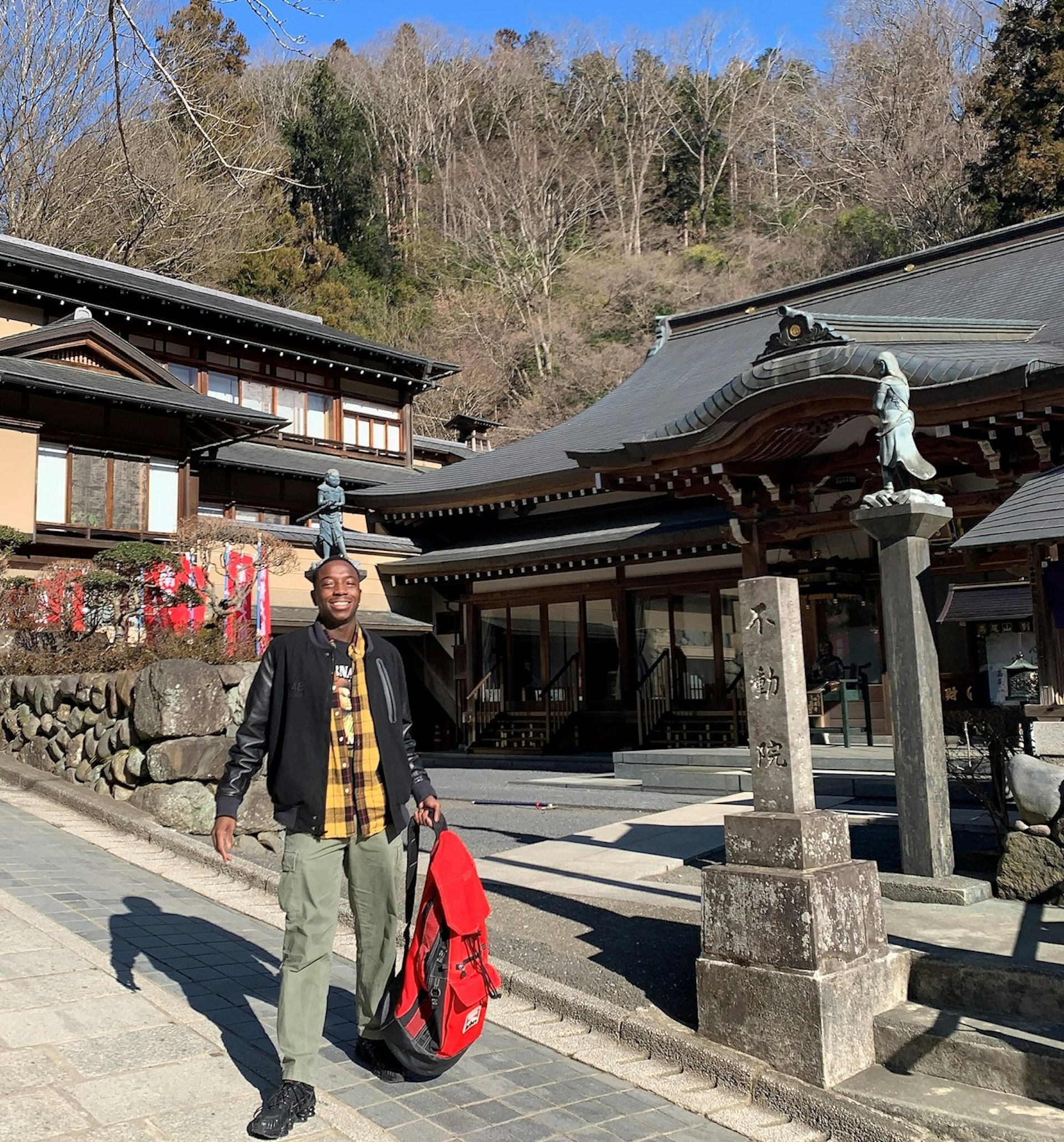
“I was working on a spatial design brief and the way the Japanese think about space and design is just beautiful,” he says. During a week-long trip, Agbetu took in exhibitions, ate “some of the most hearty rāmen” he’d ever had at Afuri in Ebisu, and met a number of local people – but it was an introduction to the ‘zine scene that enthralled him the most.
“They have a big culture of just making different ‘zines, using paper as a kind of architectural piece,” he says. “It's not just about what's in it, but it's also about how it's folded up and how it comes together. I found out a lot about that from some of the art kids that I met over there.”
By actively pursuing a trip with the intention of learning through local interaction in a mutually beneficial way, Agbetu was engaging in purposeful travel, a polysemy that has differing definitions for each traveler but is described by Trippin as a “mindset”.
This was true for Agbetu. His vacation in Japan and a second trip to the Palestinian Territories were about widening his understanding of the world rather than ticking something off a bucket list. “Both trips were more for me to understand how people socialize in different places, and understand a bit more about the way we interact and learn from what it means to live inside of another culture and to adapt to it without being voyeuristic or exploitative.”
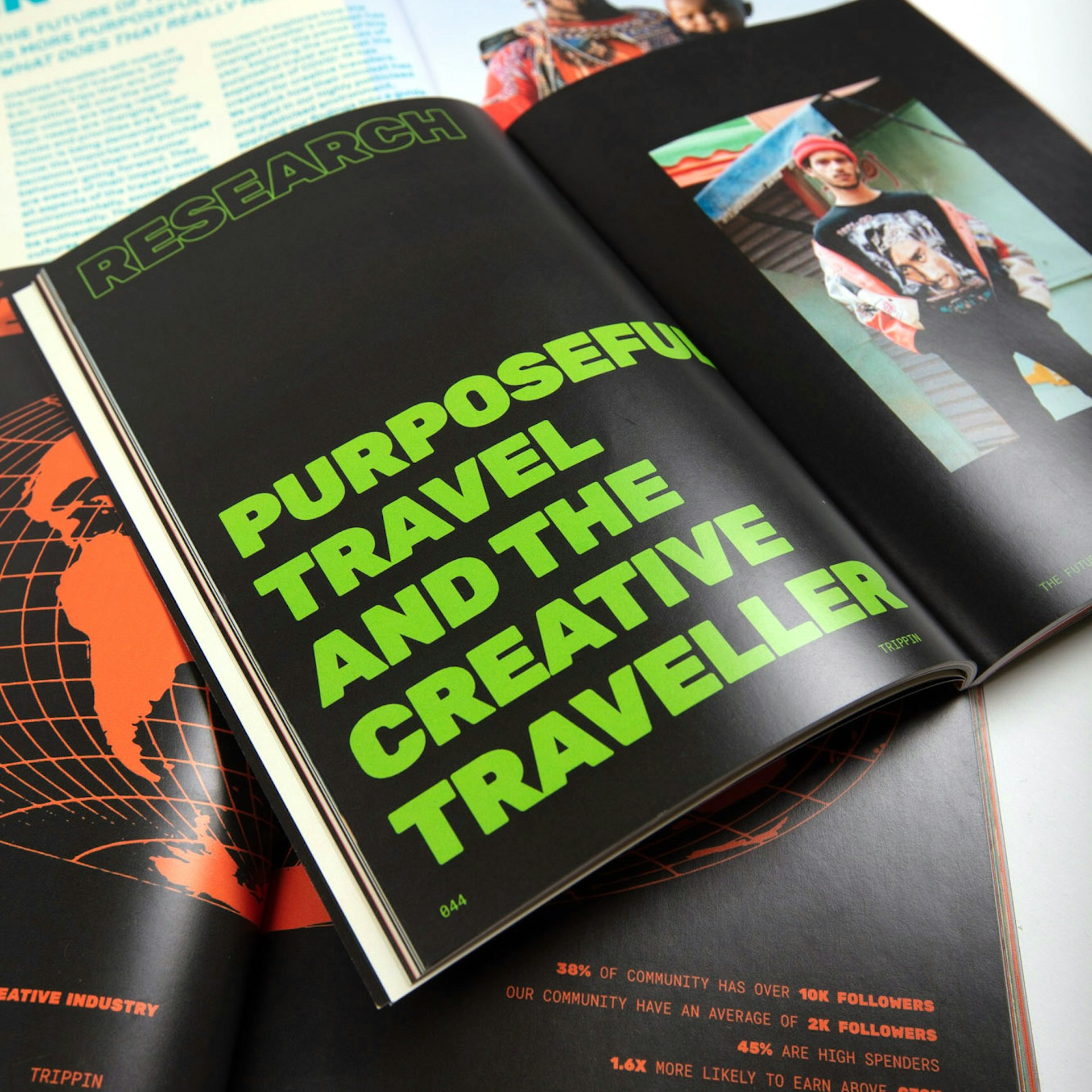
What is purposeful travel?
So could purposeful travel be the future? A report commissioned by London’s public research university UCL for the travel community Trippin suggests it could. But it will require an overhaul by brands and introspection by travelers.
“We always say [purposeful travel is] a change in mindset,” says the co-founder of Trippin, Kesang Ball. “Traveling the world is amazing: It’s there to be explored, cultures are there to be connected to, and I think that it brings us together. By understanding people's differences, we can understand more of our own.”
Trippin started as a Facebook group in 2016 before it expanded into a website that blended articles, films, and podcasts with city guides curated by local cultural icons – such as the top spots in Beijing as picked by the DJ Yu Su , or exploring Medellín with the producer Verraco.
“Our destination insights and guides are written by local journalists and cultural figures who can offer different lenses on how to experience their city and culture,” says Ball, “ensuring stories from both sides of the lens are always present.”
By partnering with local creators, Trippin publishes inclusive, intentional, and hyper-local work, designed to empower travelers to have rich, sustainable travel experiences. Ball argues that travel writing by Western media publications can distort authentic narratives in a destination, creating unrealistic expectations for travelers.
“Trips and experiences are different for each traveler which is something I've always been conscious of as someone from a mixed heritage background,” she says. When Trippin relaunches in 2022, purposeful travel will be at its heart. Should other travel publications follow suit?

Travel needs to be more diverse and inclusive
A Reuters report from 2021 found that there are no non-white editors in top roles across the top ten news outlets, both online and offline. The report concluded that white people are “significantly over-represented among top editors,” and “and non-white people are significantly under-represented.”
The Diversity in Journalism Report in 2021 found much of the same. It revealed that 92% of journalists are white – a drop of 2% compared with the same survey in 2017 – and a figure higher than the proportion for the UK workforce as a whole (88%).
Meera Dattani, the Senior Editor of Adventure.com – now publishing again following a nine-month hiatus due to COVID-19 – is one of only a handful of non-white travel editors in the UK. She believes that the lack of representation in the travel media is bad for travelers.
“It’s so important for travel media to have more diverse voices – it’s this variety of personal experiences, background, and perspectives that bring a much-needed different, refreshing angle to the table,” says Dattani. “There’s less chance of othering and exoticizing when you have this inclusivity as the approach to travel isn’t from the same type of person,” she adds.
Dattani believes the industry needs diversity from the top down, including editorial teams who make decisions about what gets published and how copy is presented. The Unpacking Media Bias newsletter , which Dattani co-founded with fellow travel journalist Shivani Ashoka in 2020, shines a light on this very issue. Since its inception, she believes there has been a small shift in editorial sensitivity.
"There are more open, honest conversations around language and why we might not use certain words or why we need to provide more context if we do," says Dattani "[This] doesn’t mean everyone is having this debate, but certainly it feels like more editors, publications and travel companies are."
Sophie Lam, Travel Editor of the i newspaper , is one of them. She has often spoken out about using a variety of voices and publishing inclusive work. Lottie Gross and Steph Dyson who run the Talking Travel Writing newsletter have argued that the genre needs to be decolonized and that LGBTQ+ inclusion needs to improve.
A number of tour operators have started to implement change too. In 2021, Intrepid Travel published an Ethical Marketing Policy to show openly how they are trying to sell destinations in more diverse, equal, and transparent ways.
“Modern travel writing is generally based on the writing genre that emerged during colonization, so this European-centric colonial gaze means we end up promoting that observation-led style of travel, rather than genuinely engaging with people,” says Dattani. “If we don’t challenge the narratives that are fed to us, we will just keep telling the same old stories even through travel writing.”
Dattani says a number of "really bold journalists" are already beginning to change the stories being told and "tell it as it is". She points to Lebawit Lily Girma writing about vaccine equity for Skift and Zoey Goto on the discovery of the last known slave ship, the Clotilda , for BBC Travel as just two examples.

Time to think about both people and the planet
The Trippin report says that for purposeful travel to work, it has to be both sustainable and available to all. “To us, purposeful travel considers the pillars of sustainable tourism but also the intersectionality of a traveler’s identity,” it reads.
The report suggests that travelers should not only think about the environmental implications of how they travel, and the social and economic impact of their visits – choosing where they stay, how they interact with locals, where they spend their money – but it also calls on the travel industry to create sustainable solutions for the future that are far more inclusive and to consider the intersectionality of the person traveling too.
Developed by lawyer and philosopher Kimberlé Crenshaw, intersectionality refers to race, class, and gender as interlocking systems of oppression. “This conceptual model, when applied to the travel industry, shines a light on how uneven its landscape is and helps us think about how power, oppression, resistance, privilege, benefits, and disadvantages are systematically distributed,” reads the report.
Joycelyn Longdon is the founder of Climate in Colour , an education platform that aims to make climate conversations more accessible and diverse, agrees that the way we travel needs to change.
“It is also important for marginalized people to not be deterred from traveling but to unapologetically show up,” she says. “I think that by more people of color, people with disabilities, and queer people showing up and taking space in travel sectors, the more intersectional the space will become.

The way we choose to travel is important as well. “We cannot continue into the future with our current travel habits,” says Longdon. “Our planet and environment are under so much pressure as it is and it's only going to get worse. We need to reimagine what travel is, before the destinations we want to jet-set to disappear underwater or are ravaged by ever more powerful and destructive hurricanes.”
According to the University of Sydney , tourism accounts for 8% of global greenhouse gas emissions, but thanks to the internet, it’s never been easier to make informed choices about traveling sustainably. The UN's Environment Programme (UNEP) has been advocating that travelers engage in slow, low-carbon travel for decades, and whilst consumers can make some small changes themselves, the industry as a whole needs to seriously think about its environmental impact.
“We need to stop buying last-minute flights,” says Longdon. “Our travel should be planned more intentionally and we should advocate for change in the workplace in terms of how we take holiday,” she adds. “It also means advertising less frivolous, impulsive experiences and really showing the destination through a local's eyes rather than tourists.”

Travel with intention
So how can travelers engage positively and with purpose? “I think travelers should meditate over the reasons for their travel before pressing the book button,” says Longdon. “We book flights like we order Deliveroo, and while I love spontaneity, I don’t think we meditate enough over why we are traveling, what we want to get out of it, how we can travel authentically, and even take some time to learn about the destinations culture, history, and people before flying.”
Longdon believes that purpose comes from intention, something that Gabby Beckford, founder of the Young Travelers Network says she sees in the choices of Millennials and Generation Z travelers.
“Gen Z travels specifically for social reasons, for self-awareness reasons, for self-improvement, for discovery and identity,” says Beckford, who is also part of the Black Travel Alliance , a group of Black travel content creators that looks to increase the representation of Black people in the travel industry. “The way that we travel is more intentional.”
Beckford believes that travelers born after 1980 are more likely to base their decisions on the harm a trip could do to the planet. “Generation Z is like the FBI when it comes to research,” she says. “[They’ll ask]: ‘What's my carbon emissions in flying versus taking a train for 48 hours?’”

Think local and watch where your money is going
Many young travelers crave authenticity as well. “Authenticity is very important, without authenticity, the culture, character, and life of a place are erased and replaced with a, usually, Western-centric ideal,” argues Longdon. “It's about fostering opportunities to see the destination through a local eye.”
This means interacting with locals, eating in the same restaurants as they do, drinking in the same bars. “I think each traveler defines what is authentic to themselves [...] but in general it is engaging with the reality that never leaves the destination,” she adds.
It could mean rethinking our accommodation options as well. “I think purposefully traveling, which is like truly interacting with people in their environment, is a much greater way of learning anything or experiencing anything than going to a resort,” says Nate Agbetu, who argues that fly-and-flops to foreign-owned hotels fuels an outdated system of capitalism and shows an idea of travel that has been sold to travelers via the media.
A 1990 study into tourism ‘leakage’ by the Thai Institute for Development and Administration estimated that 70% of all money spent by tourists ended up leaving Thailand and went to foreign-owned businesses. A report from Bali in 2017 showed that the highest percentage of tourism ‘leakage’ came from 4- and 5-star chain hotels (55.31%), while local, non-star hotels only leaked 2%.
"With COVID-19, resorts, hotels, restaurants became pretty desperate to get locals into their properties,” says Ashlee Constance, a social media marketing specialist from Barbados . “At first it was exciting to think, finally I’ll be able to afford such experiences or be a tourist in my own country but at some point you begin to question: Is this possible because they see us as valued customers or it is because they have no other choice?”

Travel with purpose when exploring close to home too
Kesang Ball thinks that we all need to travel with purpose locally too. "My recent trips have all been local,” she says, “so I've focused on choosing a more sustainable method of transport getting there.”
In 2021, one of Trippin’s co-founders, Sam Blenkinsopp, visited Pembrokeshire in Wales . “Long hikes along the coastline geared up in as much Goretex as humanly possible to protect from the sideways rain, followed by takeaway fish and chips in the car,” he says. “For some that could sound like a nightmare but for me it's a nostalgic one, reminding me of trips with my family growing up.”
Blenkinsopp decided to go to Wales because it was close to home. He also suggests traveling off-season and buying from locally-owned businesses as purposeful ways to travel.
The Trippin team echoes this in how they commission and create their own content too. “We went out to Lagos to document the local creative scene and the people out there who are moving culture forward,” says Ball. “With every piece of content we create, it’s important for us to ensure we are authentically representing the culture of that destination. So in Lagos, we made sure that our crew, even down to the producers on the ground, scouts and the director of photography were all from Nigeria. You always create the best content that way.”
Ball believes that depicting each destination in a way that locals would want it to be seen gives younger people a genuine glimpse into a culture. “Traditional media platforms that publish travel stories have frequently perpetuated and distorted cultural narratives,” she says. “They influence tourists on what to expect of cultures when they arrive. Putting cultures and communities across into ‘digestible buckets’ [that are] palpable for the Western lens. This has so many negative impacts on cultural exchange and honestly, young people are over it.”
You might also like: Black Gotham walking tours will lead you through New York's untold history Why travel is important to Generation Z What are the most welcoming destinations according to black women travelling solo?
This article was first published December 2020 and updated February 2022
Explore related stories
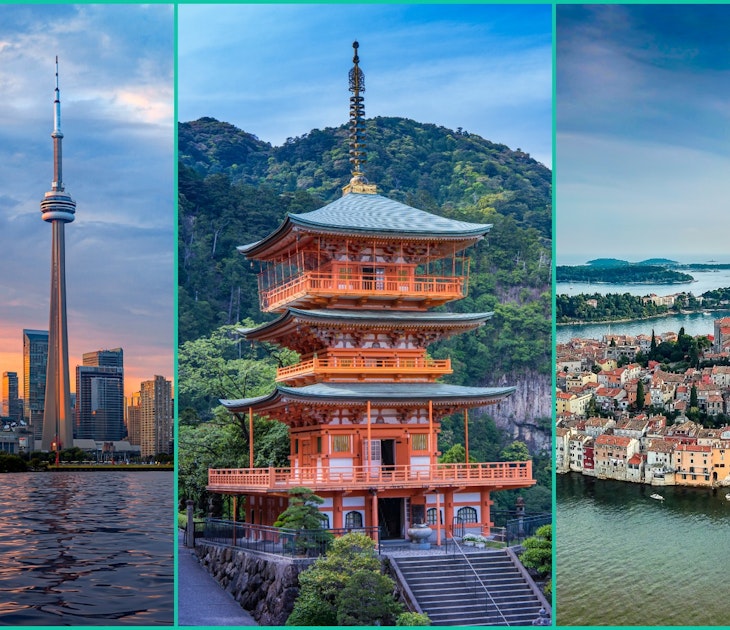
Jan 22, 2021 • 5 min read
The Lonely Planet community were looking for sustainability, community and diversity when they voted in the Readers' Choice Awards. Here are the winners.

Apr 14, 2024 • 6 min read

Apr 2, 2024 • 10 min read

Mar 28, 2024 • 7 min read

Mar 26, 2024 • 8 min read

Mar 25, 2024 • 6 min read

Mar 25, 2024 • 10 min read

Mar 23, 2024 • 17 min read

Mar 22, 2024 • 9 min read
- Australia has become the number-one country destination, thanks to its booming economy, openness to foreign talent, and great quality of life.
- As in years past, London tops the list of desirable cities to move to.
- People who move abroad for work expect their new employer to take the lead in supporting their relocation and onboarding and to cultivate an international, inclusive culture.
- Governments can establish policies, incentives, and frameworks that will help employers attract and hire the talent they need.
Subscribe to our People Strategy E-Alert.

Talent and Skills
/ report, dream destinations and mobility trends, decoding global talent 2024.
By Jens Baier , Orsolya Kovács-Ondrejkovic , Tobias Zimmermann , Pierre Antebi , Susan Gritzka , Sacha Knorr , Vinciane Beauchene , Carmen Marquez Castro , Zoë McFarlane , Anja Bates , Julie Bedard , and Ashish Garg
This is the first report in a series analyzing the work preferences of global talent in 2024 .

Ten years ago, we launched the Decoding Global Talent series of reports, excited to watch trends in the wide world of work. We never imagined how powerfully and rapidly various global forces—the pandemic, remote work, geopolitics, GenAI , and more—would disrupt work. Nevertheless, the turmoil of the past decade has had little impact on the enduring appeal of talent mobility.
Take Anne Granelli. We first interviewed her in 2014, when Anne, a biomedical researcher and native of Sweden, was living and working in New Delhi with her family, after a stint in Canada. “We really like the international atmosphere,” she shared then. “It’s a great opportunity to get different views and learn a lot.” We’ve continued to follow her story. Now 53, she is living and working in Dubai for a US-based medtech company. She recently observed, “Life is too short not to explore all the options.”
The options for working abroad are plentiful—as are the workers who are ready for new opportunities.
Employers and nations stand to benefit as well. But to reap the rewards, they must understand the preferences of mobile workers, which entails answering several key questions:
- How have the top target destinations shifted?
- Why do people aspire to move to specific countries?
- What can future employers and the governments of destination countries do to court global talent?
About the Decoding Global Talent Series
- The Decoding Global Talent series is the largest data source on the mobility preferences of workers globally. Our cumulative data set comprises almost 900,000 responses on where and how people want to work around the world.
- It is a collaboration of BCG, The Network, and The Stepstone Group.
- The current report explores trends in workforce mobility, including willingness to move abroad for work, and provides an updated ranking of top destination counties and cities.
- In this year’s survey, we explored a new dimension of global mobility: the reasons why respondents favor particular destinations. We asked survey participants how they perceive certain countries and why they think they would be happy in those destinations.
Where Do People Want to Go?
In 2023, Australia, which has been steadily rising through the ranks since we initiated this series, finally topped the list of desirable country destinations .

Australia became more attractive to respondents from Asian countries, and it rose in popularity among respondents from North America, Africa, and several European countries, including the UK and Ireland. Amid an economic boom as the world emerged from the worst stages of the pandemic, Australia has been attractive to talent from abroad, offering job opportunities, visas, and great quality of life.
Overall, though, the upper echelon of the rankings hasn’t changed much. Canada and the US are still top-three talent destinations because of the attractive economic opportunities they offer and because they are, simultaneously, English-speaking countries and global melting pots.
The most dramatic change we found in the rankings was Spain’s reemergence among the top ten, after becoming less attractive during the pandemic (the country was hit hard early on).
Why Do People Choose a Specific Country?
We dug deeper to find out how people who are willing to move for work choose a destination, leaning on definitions and rankings from the Organisation for Economic Co-operation and Development in its 2023 Indicators of Talent Attractiveness report.
We looked at extrinsic factors —characteristics of countries. We found that one consistent, primary consideration supersedes individual country brands: the quality of job opportunities. Nevertheless, a few countries benefited from another prominent consideration: quality of life .
And we looked at intrinsic factors —practical considerations related to the individuals themselves. Overall, speaking the primary language or languages of the destination country matters a lot, especially among respondents who favor English-speaking countries. Personal recommendations from acquaintances who have experience with the destination country make a difference, too, as does having a diaspora of the same nationality in the target destination.

What Can Employers and Governments Do?
People’s interest in moving abroad for work is significant, as are the benefits for employers and national and local economies. We recommend that businesses and governments target several key strategic areas and offer mobile talent advice along each step of the journey that they will be taking.

It’s no accident that we start with recommendations for employers...
But governments play a strong enabling role, so we have recommendations for them too...

- Forecast talent needs, and craft an international location strategy.
- Refine the EVP to resonate with new audiences.
- Boost international recruitment channels.
- Offer extensive relocation support.
- Onboard new arrivals—and their families.
- Ensure an inclusive and international work environment.

- Take a strategic approach to managing immigration.
- Boost the country brandwith a focus on jobs.
- Build bilateral partnerships and programs.
- Fast-track talent with critical skills.
- Make immigration user-friendly.
- Promote labor market inclusion.
- Promote societal inclusion.
People who have moved abroad for work—or aspire to—do so for a variety of practical reasons. But there’s also a sort of joie de vivre that takes hold among mobile talent. Patrick Byrne, a US-born lawyer now in Spain, shared with us, “I love the idea of adventure. Just the idea of living somewhere else, trying something new, experiencing another culture. That alone is an amazing thing.”
Employers and nations that tap into such positive energy, from the millions of workers with mobile aspirations, will gain a major competitive advantage and source of growth.
ABOUT BOSTON CONSULTING GROUP
Boston Consulting Group partners with leaders in business and society to tackle their most important challenges and capture their greatest opportunities. BCG was the pioneer in business strategy when it was founded in 1963. Today, we work closely with clients to embrace a transformational approach aimed at benefiting all stakeholders—empowering organizations to grow, build sustainable competitive advantage, and drive positive societal impact.
Our diverse, global teams bring deep industry and functional expertise and a range of perspectives that question the status quo and spark change. BCG delivers solutions through leading-edge management consulting, technology and design, and corporate and digital ventures. We work in a uniquely collaborative model across the firm and throughout all levels of the client organization, fueled by the goal of helping our clients thrive and enabling them to make the world a better place.
© Boston Consulting Group 2024. All rights reserved.
For information or permission to reprint, please contact BCG at [email protected] . To find the latest BCG content and register to receive e-alerts on this topic or others, please visit bcg.com . Follow Boston Consulting Group on Facebook and X (formerly Twitter) .
Featured BCG Experts

Managing Director & Senior Partner

Orsolya Kovács-Ondrejkovic
Associate Director

Vinciane Beauchene
Managing Director & Partner

Julie Bedard

Ashish Garg
Jens Baier leads Boston Consulting Group’s work in human resources (HR) in Central and South America, Europe, and the Middle East (CEMA). Since joining the firm in 2000, he has managed a wide range of projects, including HR excellence programs, migration of HR IT to cloud solutions, strategy development, large scale transformation, organizational redesign, role of the center definition, set up and optimization of shared services, and cost efficiency programs. He has worked with clients in a wide range of industries in Germany, Europe, the Middle East, and South Africa.

Orsolya Kovács-Ondrejkovic joined Boston Consulting Group in Budapest in 2013. She is a member of the People & Organization practice, focusing on people strategy. Orsolya has significant expertise in HR (especially redesigning HR operating models), talent and workforce trends, organizational design, and strategic workforce planning, and has worked with leading global companies. Her present focus is helping organizations prepare their workforces for the future of work.

Vinciane Beauchene is a core member of The Boston Consulting Group’s Health Care, Industrial Goods, and People & Organization practices.

Ashish Garg is the leader of People & Organization practice in Asia-Pacific and a core member of the Financial Institutions and Public Sector practices. He leads BCG’s work in skilling, capital markets, and wealth management in India.


COMMENTS
The business of travel and tourism is a multifaceted realm that demands a relentless focus on customer satisfaction, innovation, and responsible practices. Success in this sector requires a deep understanding of your niche, a commitment to service excellence, and strategic marketing efforts. As the travel industry continues to evolve ...
Learn more about the travel and tourism industries, their differences, and the sectors within those industries.
Definition. Travel Industry - It means that Migrate one place to another place for different purposes and needs. This can refer to long-distance, short-distance, overseas, domestic, and various other forms. Fundamentally, the journey also includes round trips and one-way trips and covers a wide variety of different travel purposes.
Travel Industry: One of the Largest Service Industries. What is the travel industry? The travel industry is concerned with providing services related to travel from one location to another.
tourism, the act and process of spending time away from home in pursuit of recreation, relaxation, and pleasure, while making use of the commercial provision of services. As such, tourism is a product of modern social arrangements, beginning in western Europe in the 17th century, although it has antecedents in Classical antiquity.
Travel entails wishful thinking. It demands a leap of faith, and of imagination, to board a plane for some faraway land, hoping, wishing, for a taste of the ineffable. Travel is one of the few ...
Globally, travel and tourism's direct contribution to gross domectic product (GDP) was approximately 7.7 trillion U.S. dollars in 2022. This was a, not insignificant, 7.6 percent share of the ...
U.S. Travel Association is the national, non-profit organization representing all components of the U.S. travel industry—a key contributor to America's economic success. Our mission is to increase travel to and within the United States, and in doing so, fuel our nation's economy and future growth. U.S. Travel Officers ›.
But the future of the travel industry will depend on more than just travelers' pent-up demand. For some, the romance that travel used to inspire was already wearing thin even before the crisis. We spoke to people across multiple geographies who have traveled in the last two months, 5 and the one constant across their experiences was added ...
In 2020 alone, the travel and tourism industry lost $4.5 trillion in GDP and 62 million jobs - the road to recovery remains long. The World Economic Forum's latest Travel & Tourism Development Index gives expert insights on how the sector will recover and grow.; We asked four business leaders in the sector to reflect on the state of its recovery, lessons learned from the pandemic, and the ...
In conclusion, the travel and tourism industry holds immense global significance with its wide-ranging scope. It encompasses diverse activities, including international and domestic travel, hospitality services, transportation, and more. The industry plays a substantial role in driving economies, fostering cultural exchange, and contributing to ...
Tourism Industry: Everything You Need to Know About Tourism. What is the tourism industry? What is a tourist? What are the benefits of tourism?
Increasingly, travel and tourism companies are using DCG to crack the code of a more dynamic market characterized by greatly expanded consumer choice. The concept has broad implications for new products and brands, loyalty programs, M&A, and other key areas of company strategy. For incumbent travel and tourism companies, it offers a clear way ...
In 2020 alone, the travel and tourism sector lost $4.5 trillion and 62 million jobs globally. But as the world recovers from the impacts of the COVID-19 pandemic, travel and tourism can bounce back as an inclusive, sustainable, and resilient sector. Two experts highlight some of the key transformations in the sector going forward during the ...
An OTA is a travel website that specializes in providing travel services to customers including flights, hotels, car rentals, cruises, activities, and packages. These websites have in-built booking systems that allow users to instantly book. Some of the popular examples of OTAs are Expedia, Priceline and Orbitz.
2023 Offers Hope for Continued Growth in the Travel and Hospitality Sectors. As the travel and hospitality sectors continue to grow and shift in the post-pandemic era, Capuano shared reasons for optimism in 2023. "Number one, it's our people," he emphasized. "When you see their passion, their enthusiasm, their resilience, their creativity ...
A travel agency is essentially the 'middle man' between travel companies and the general public i.e consumers. They book all sorts of travel-related experiences for customers on behalf of larger companies. The main aim of a travel agency is to make the booking process simpler for the public, who might lack the time or confidence to book ...
The travel industry is any business that services business travel or tourism. This is an extremely large and broad industry that overlaps with other industries such as the transport and hospitality industry. The following are the basic components of the travel industry. Transport
They will be more likely to survive and thrive. As an ex-strategy consultant and public speaker on digital and technology trends, and now running venture-backed, travel-tech startup Beyonk, here ...
A travel agent assists individuals or groups in planning, organizing, and booking various aspects of their travel arrangements. They act as intermediaries between travelers and travel suppliers, such as airlines, hotels, car rental companies, and tour operators. Travel agents have in-depth knowledge of different destinations, travel options, and industry trends, which they leverage to provide ...
IATA is the trade association of the global airline industry. Our current 300 members account for 82% of global air traffic. Since our creation in 1945,we have supported the development of the commercial standards upon which the global air transport industry is built. We assist airlines and air travelers by simplifying processes and increasing ...
The purpose of travel is connected with building social relationships, opportunities to learn and grow, and commitment. It gives us the chance to be truly engaged in an activity, to develop new skills and to discover new cultures. It brings us closer to ourselves and others. In other words, all the things we need to increase our resilience!
A report commissioned by London's public research university UCL for the travel community Trippin suggests it could. But it will require an overhaul by brands and introspection by travelers. "We always say [purposeful travel is] a change in mindset," says the co-founder of Trippin, Kesang Ball. "Traveling the world is amazing: It's ...
The industry has suffered an unprecedented shock. BCG collaborates with travel and tourism providers as they navigate this turbulence and build resilience for the future. Visit Page. Within Travel and Tourism ... Excavating purpose is among the rewarding journeys companies can take. BCG BrightHouse helps organizations embrace purpose to achieve ...
This sanction aims to restrict the capacity of Russian industry to acquire key goods and to disrupt road trade both to and from Russia. However, EU countries can grant derogations for: the transport of energy; the transport of pharmaceutical, medical, agricultural and food products; humanitarian aid purposes